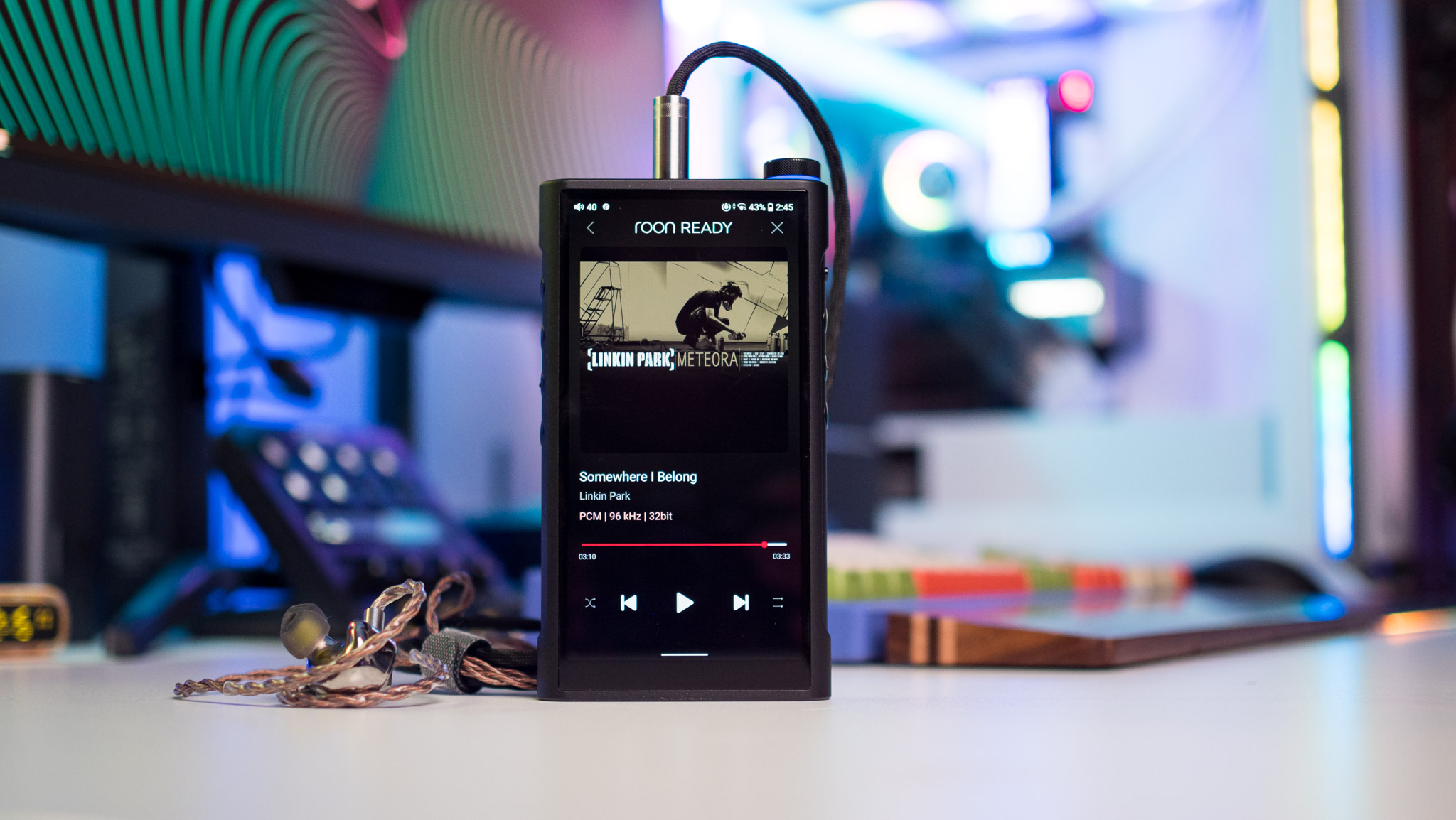Android Central Verdict
The M15S is a digital audio player that doesn't miss out on anything. It uses ESS Sabre's flagship DAC, has a gorgeous design with an etched pattern at the back, comes with a host of accessories, and has a large 5.5-inch screen with a lag-free interface. You get full access to the Play Store, and the player has a MicroSD slot, Roon integration, and the ability to drive any IEM or headset available today. With excellent imaging and tonality, the M15S shows that Fiio can once again deliver the best digital audio player for under $1,000.
Pros
- +
Unique design with sturdy build quality
- +
All the ports you need
- +
More than enough power to drive just about any IEM or headset
- +
Clean sound signature with excellent tonality
- +
Good hardware that's lag-free in daily use
- +
Works with Roon
Cons
- -
Still uses Android 10
- -
Average battery life
Why you can trust Android Central
Fiio is launching products faster than Xiaomi, and that's a sizeable feat in and of itself considering just how many things Xiaomi rolls out on a monthly basis.
The latest launch is focused on the digital audio player category, one that Fiio has dominated in recent years. The brand's M series of products are highly regarded, and having used the $499 M11S for a few months now, I can attest to its sound quality.
The M15S sits one tier higher in Fiio's portfolio, and it is available for $999. That's a lot of cash for a music player, but the M15S is packed full of useful features: it's basically an Android device without the phone bits, and instead you get a high-end DAC and all the connectors you need for hooking up your audio gear.
I used the M15S for over a month now, and here's what you need to know about the music player.
Fiio M15S: Pricing and availability
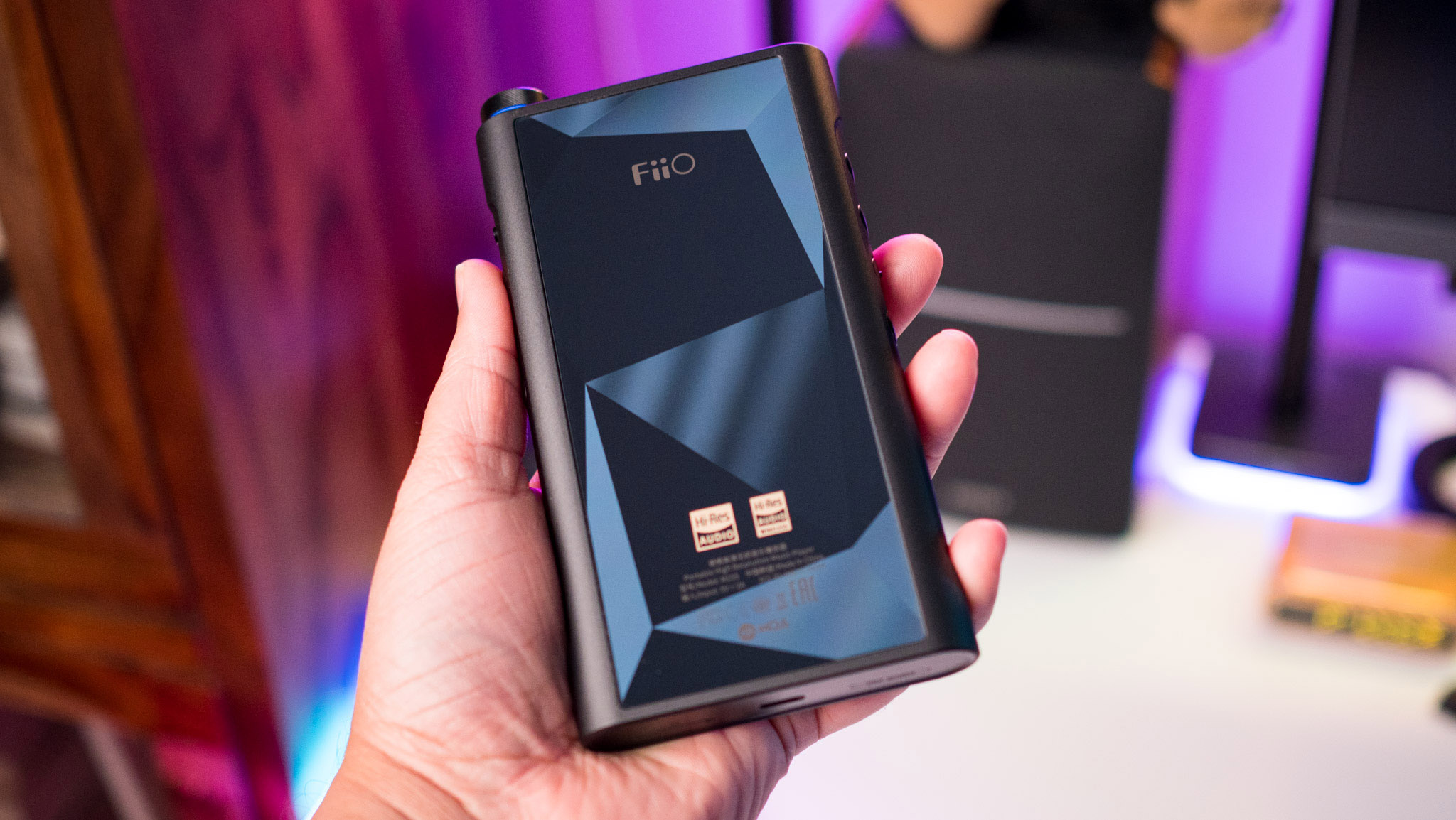
Fiio launched the M15S earlier in the year, and the music player is now available for sale in all global markets where the brand has an official presence. The audio player retails for $999 on Amazon in North America, and it is available at most major audio retailers. It's sold in a single color option, and there's a single variant that includes all the accessories you need to get started.
Fiio M15S: Design
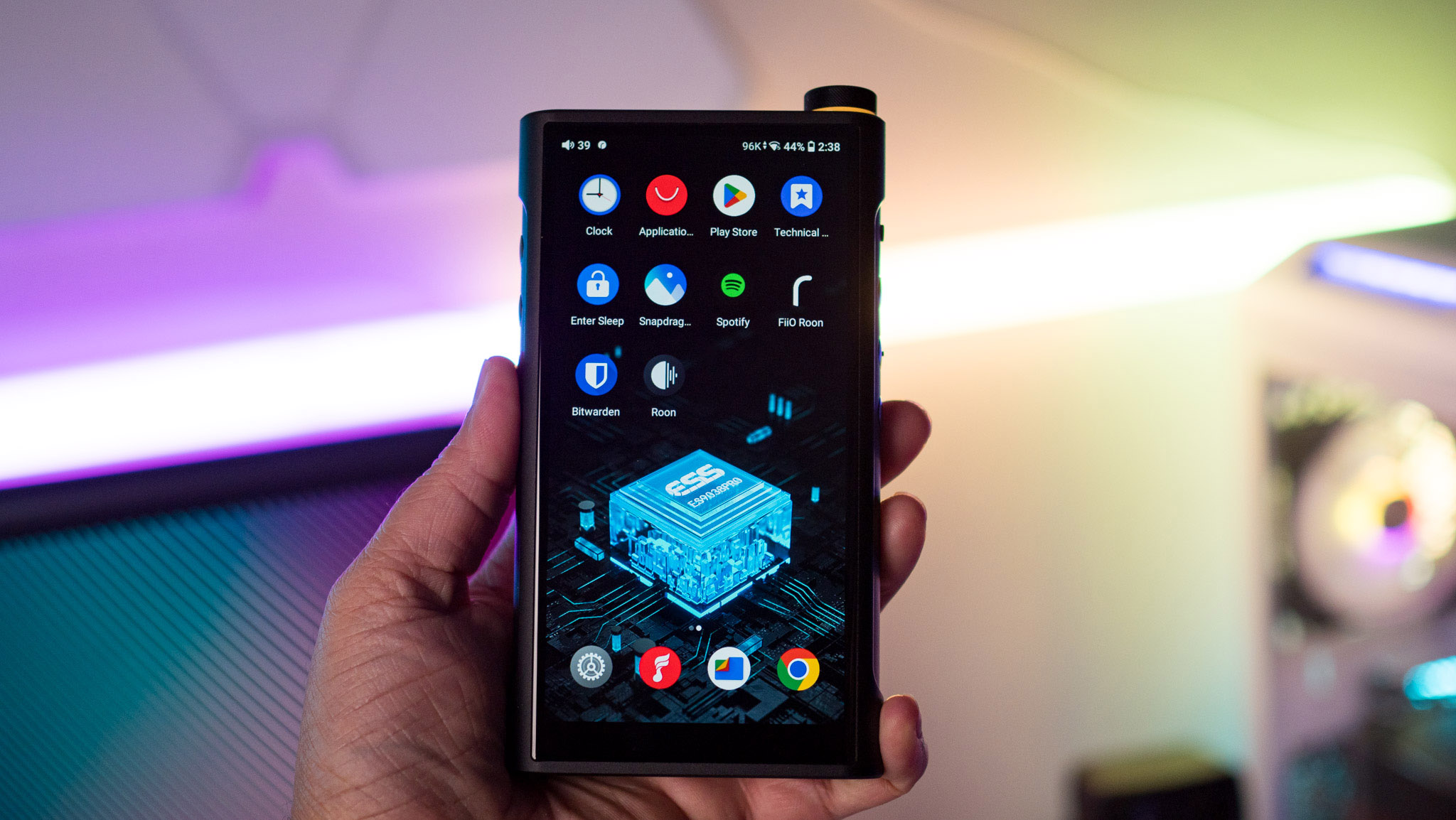
Fiio has a distinct design aesthetic that focuses on angular lines and bold styling, and the brand outdid itself with the design of the M15S. The device has a curvier design than its siblings, with flowing curves on all sides and rounded buttons, and while that's different to the likes of the boxier M11S, Fiio went with an etched diamond-cut pattern at the back that looks fabulous.
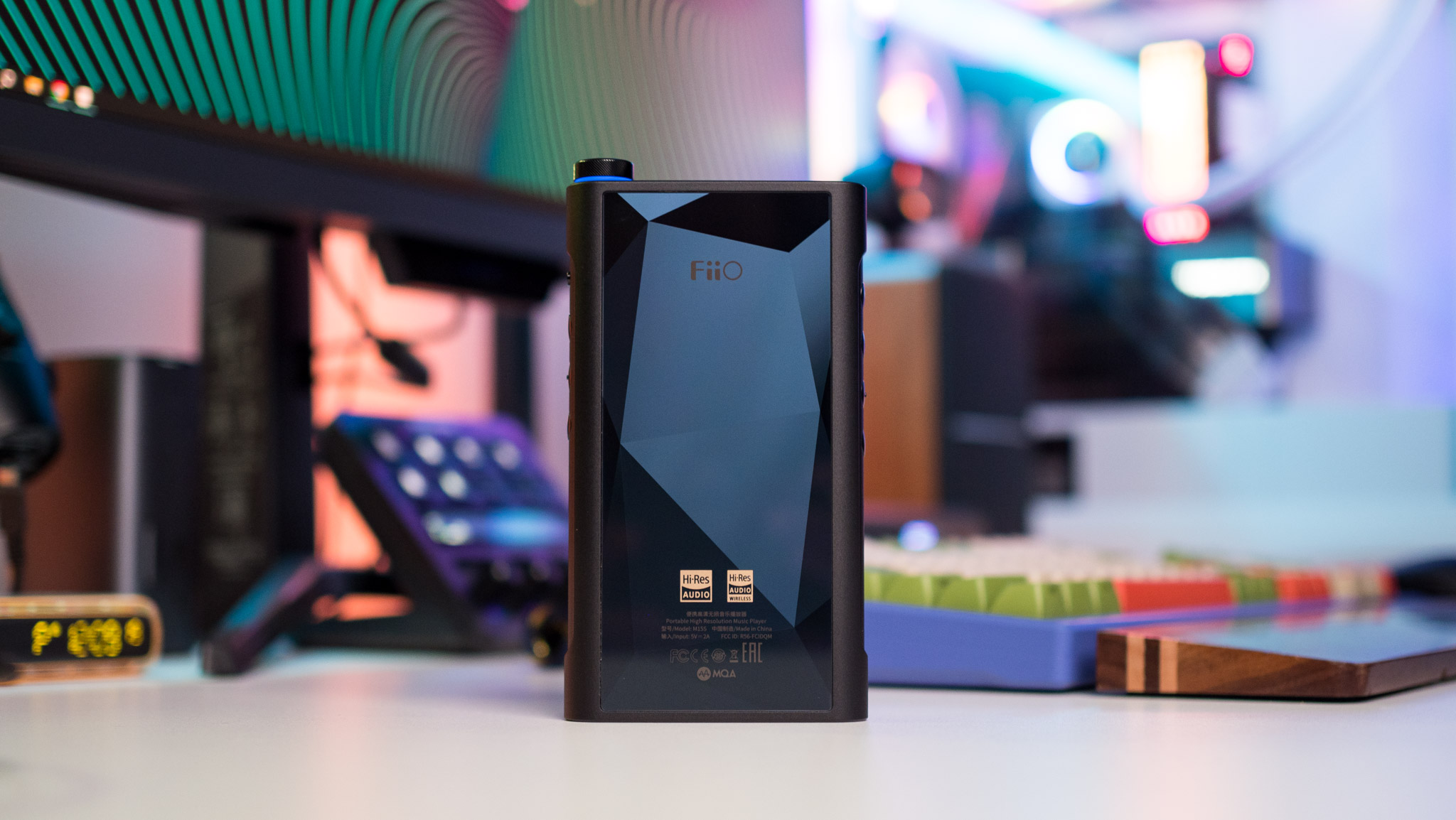
This pattern reminds me of similar designs used by Chinese phone manufacturers a few years ago, and it looks just as striking on the M15S. The chassis of the M15S is made out of aluminum — as you'd imagine for a product in this category — and it feels sturdy and durable. To protect the front and rear panes of glass, you'll find a luxurious leather case bundled in the box. In fact, the M15S is tucked into the case at the factory, and it is delivered that way — ensuring the device doesn't get damaged while in transit.
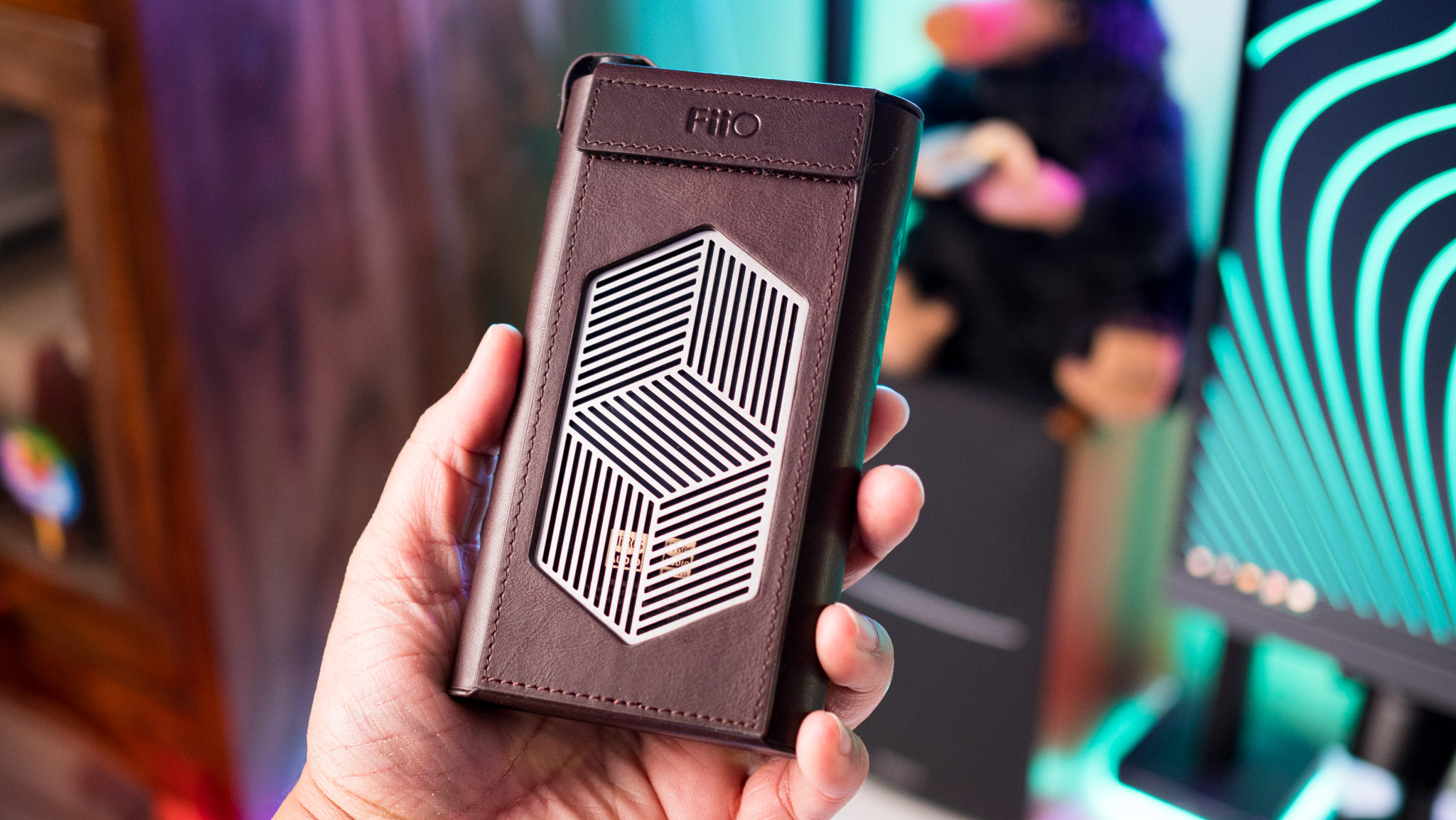
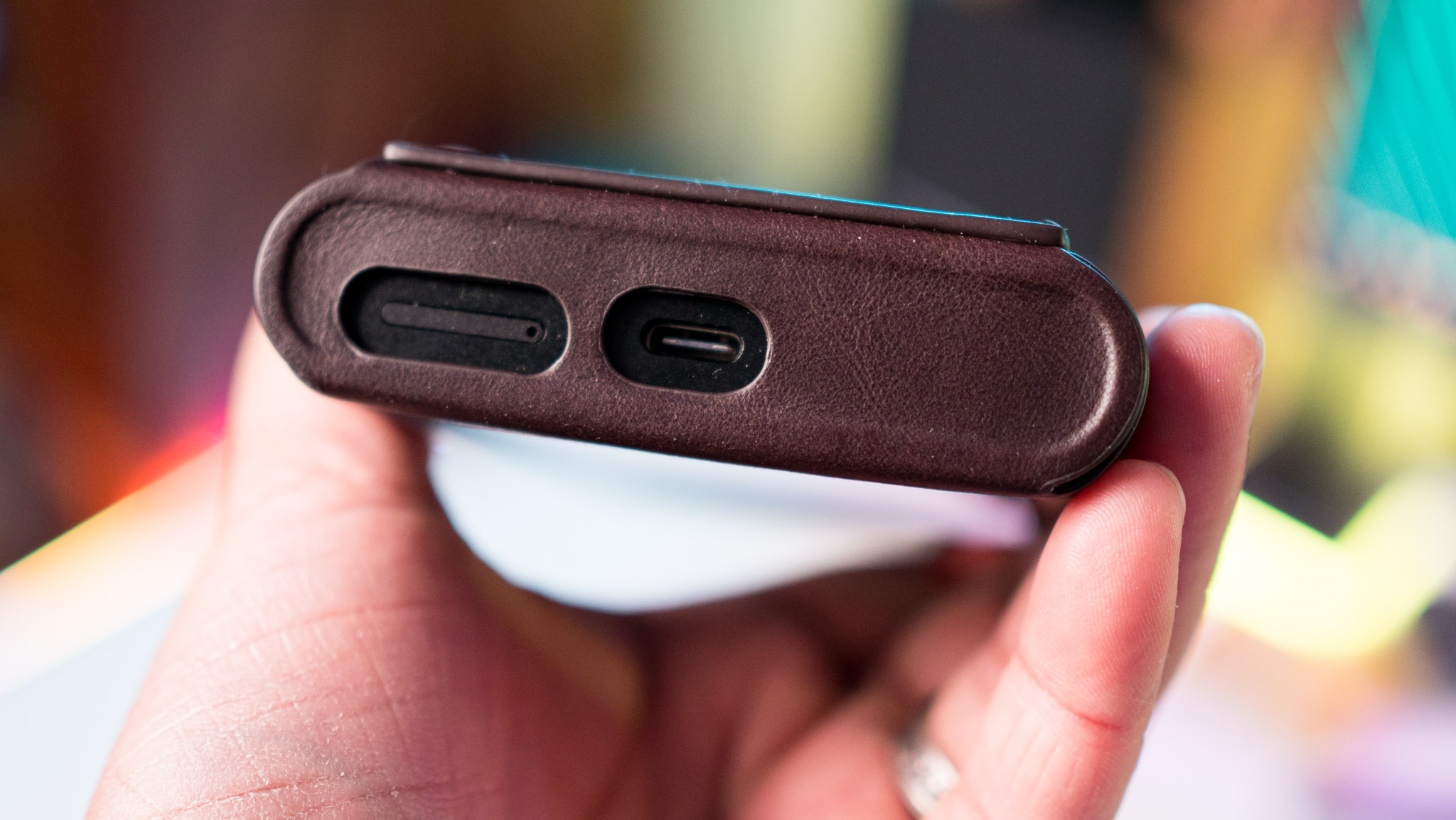
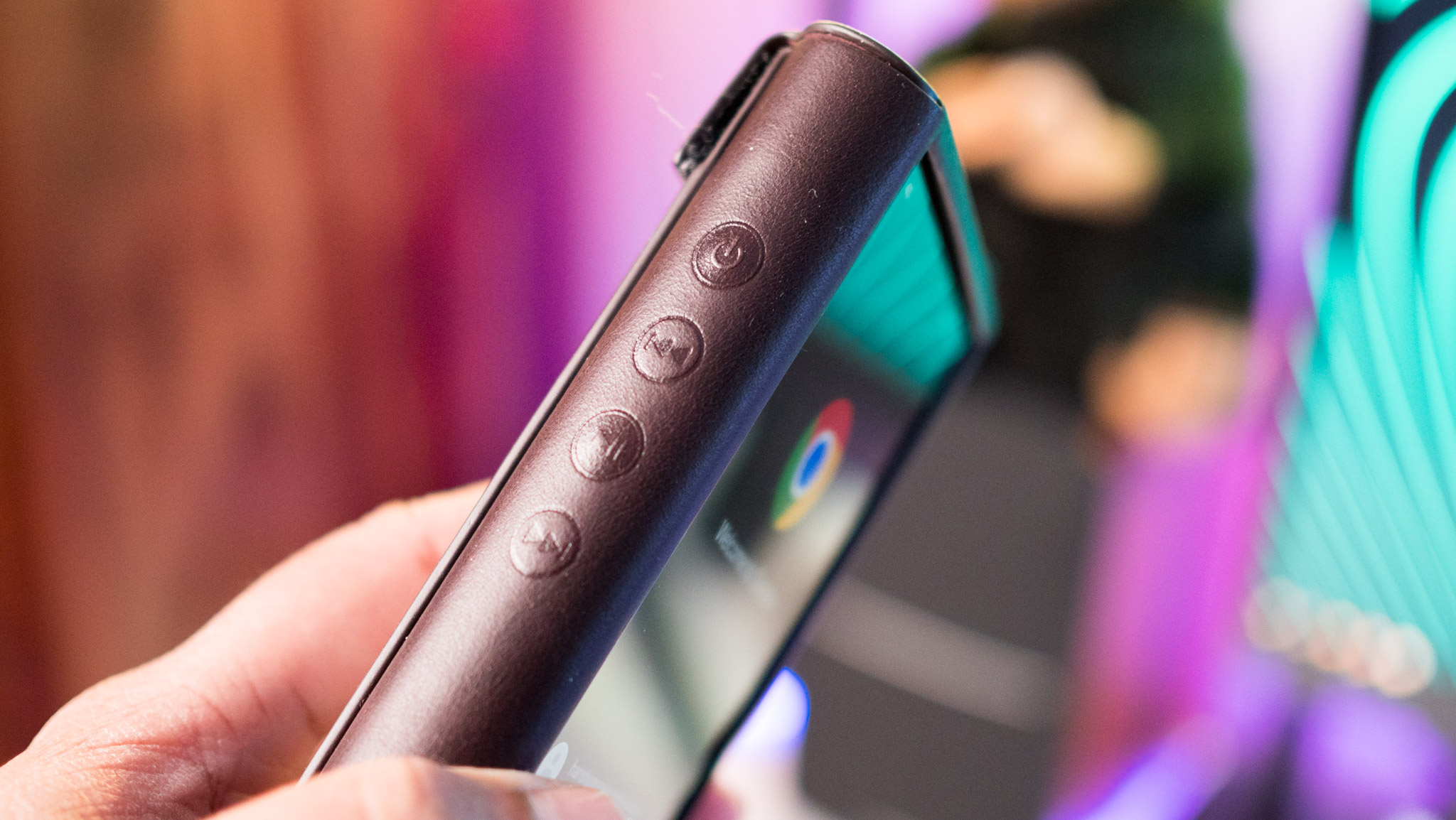
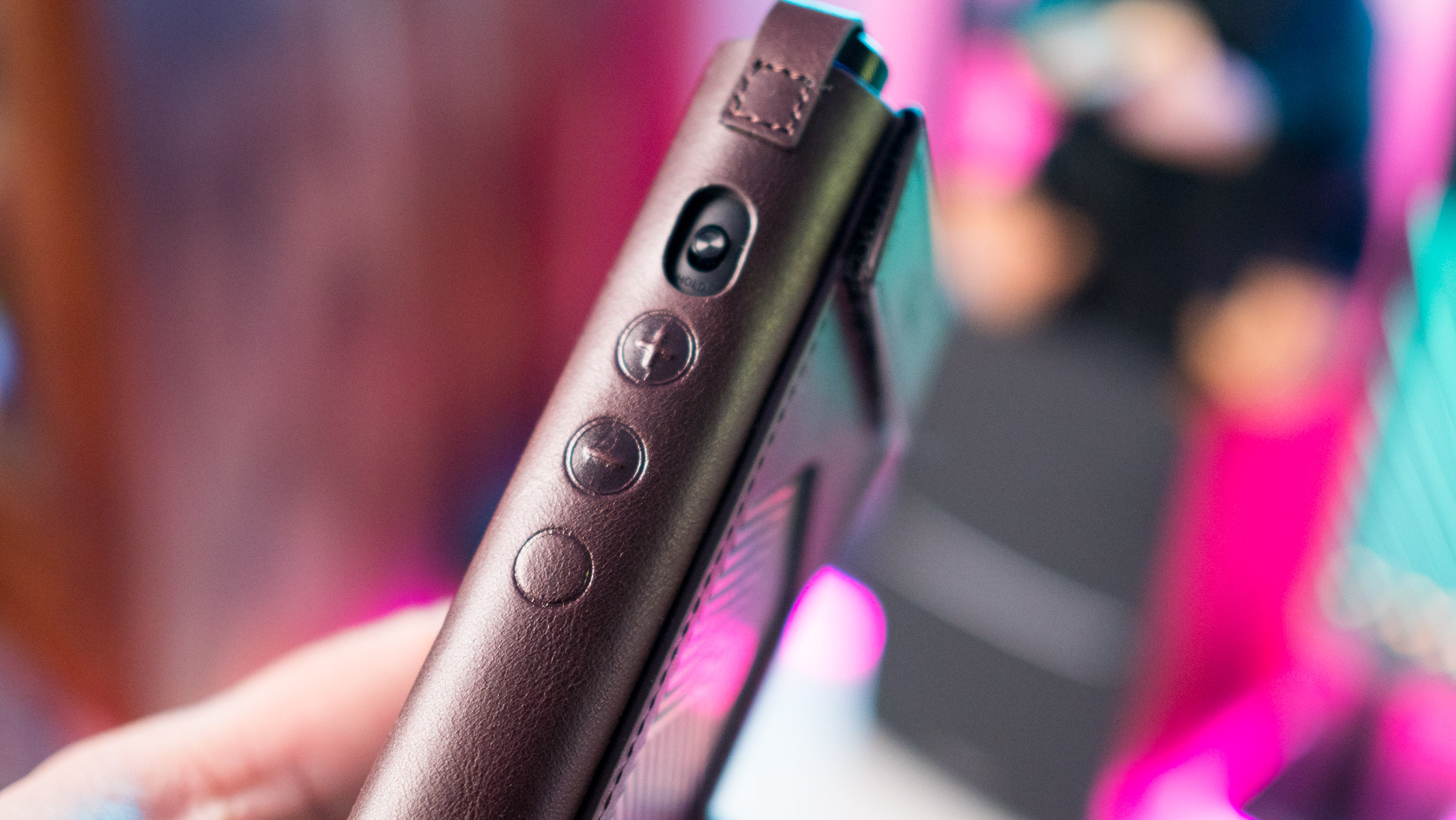
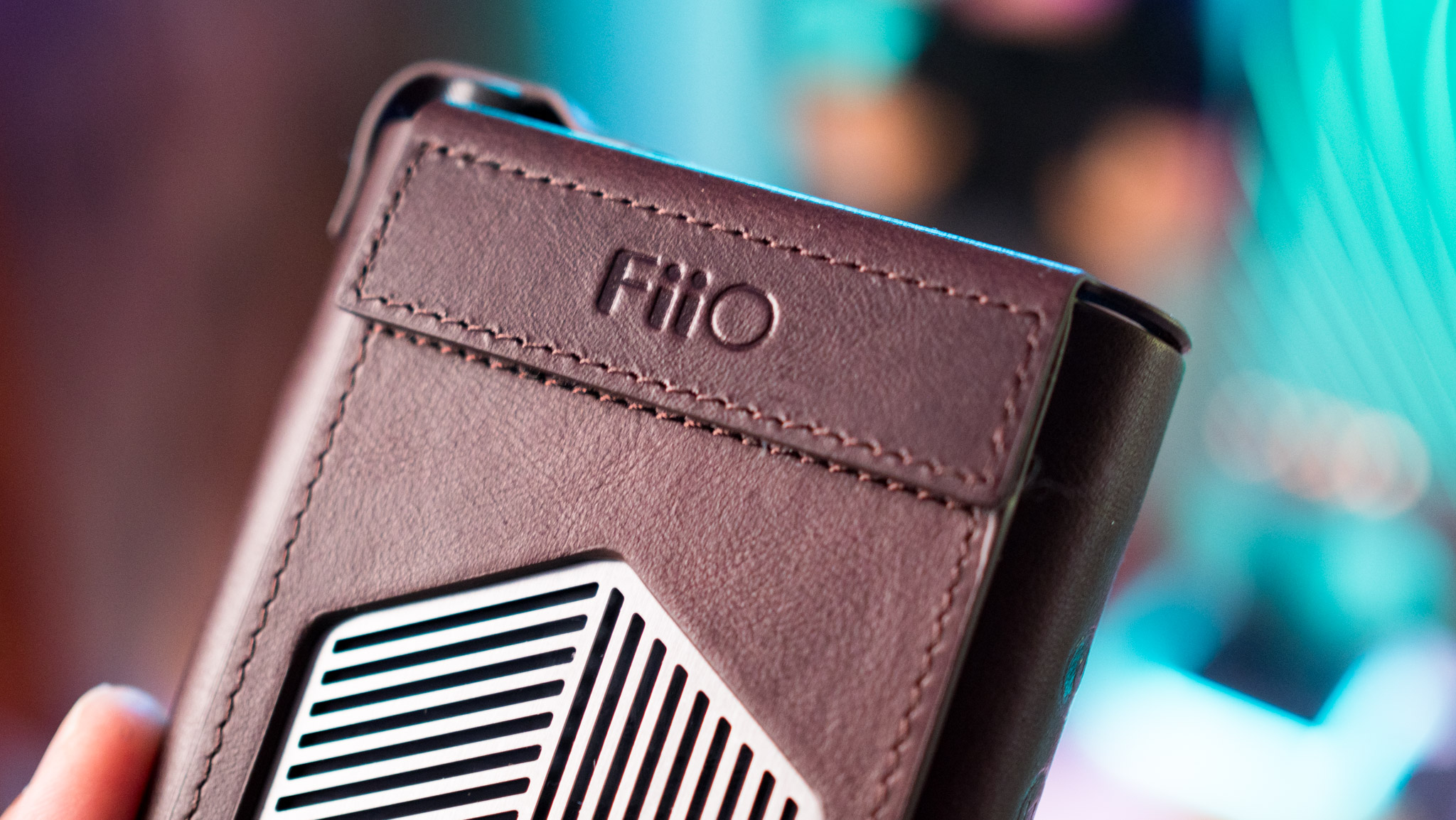
The leather case gives you access to all the ports while providing an additional layer of protection, and while I generally don't use cases in general, I didn't mind using the one Fiio bundled with the M15S. It feels great in-hand and adds to the upmarket look of the player.
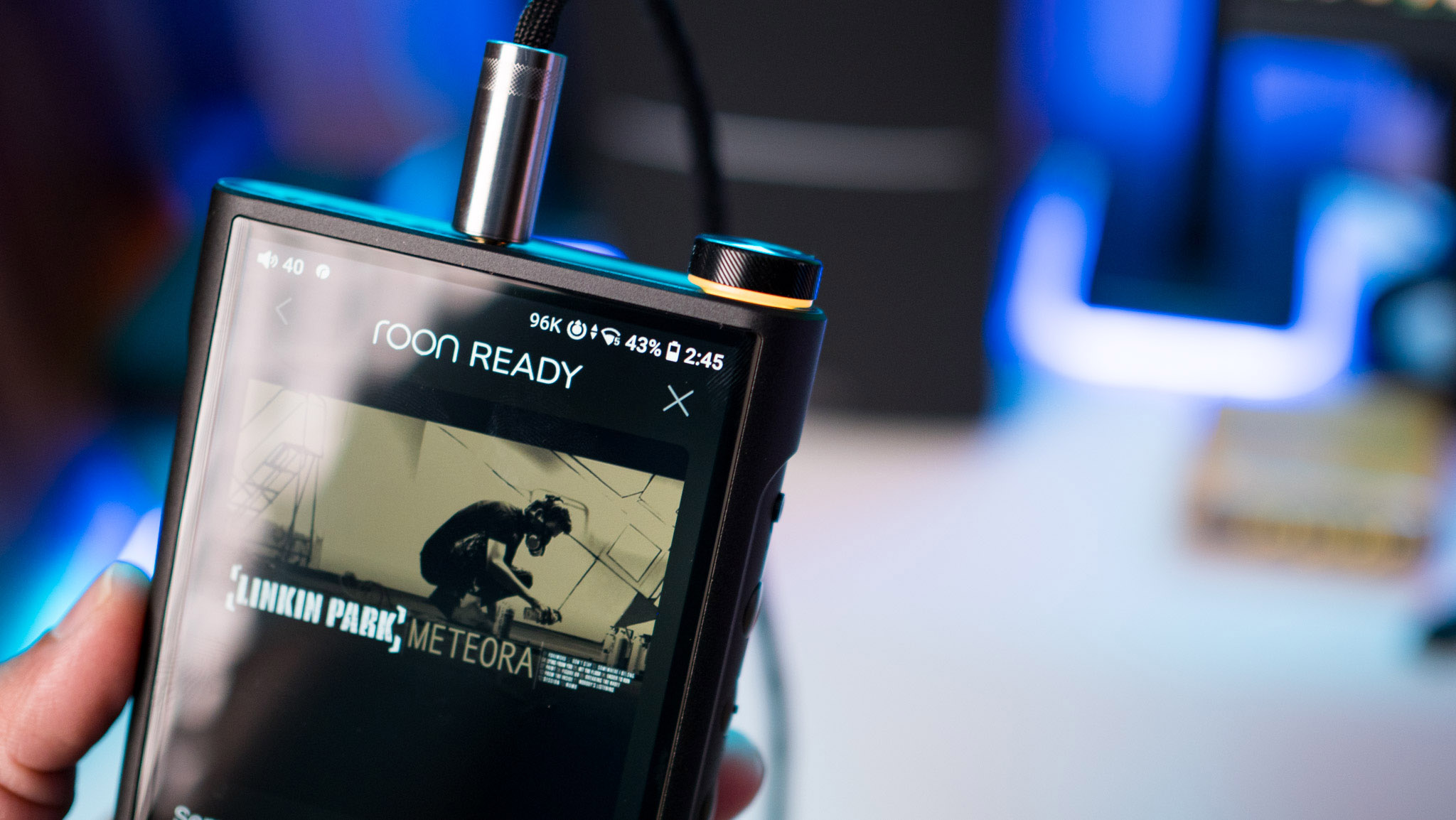
Continuing with the design, the M15S has a volume knob at the top, and it includes a tiny LED ring light. You'll find the ports next to the volume knob, and there's a single-ended 3.5mm port along with balanced 2.5mm and 4.4mm ports.
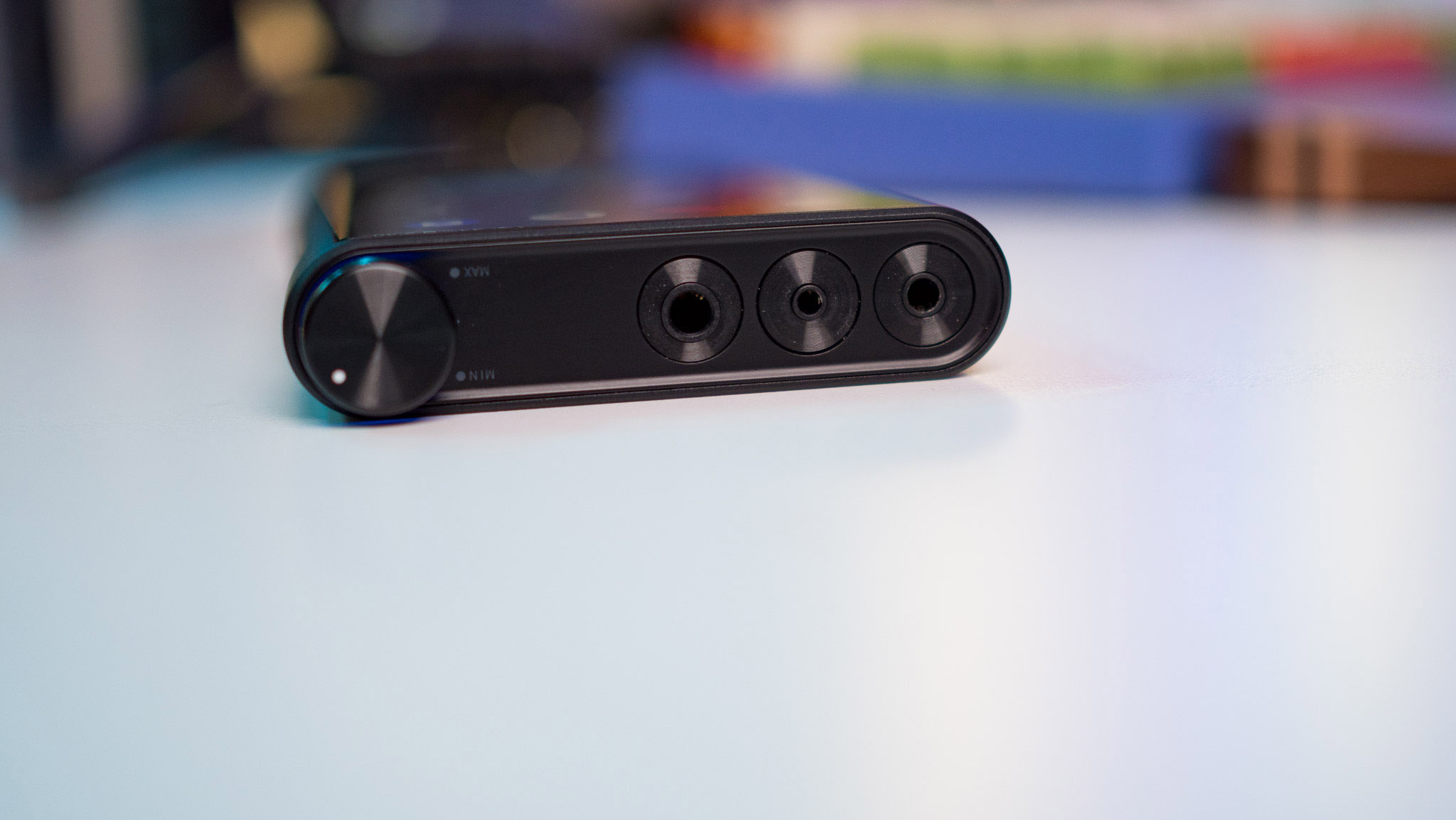
Both sides of the M15S have rounded buttons; the left includes the power and music playback controls, and the right side houses the volume rocker and a customizable button that can be used for any action you desire. There's also a Hold toggle that locks the screen, preventing any mistouches.
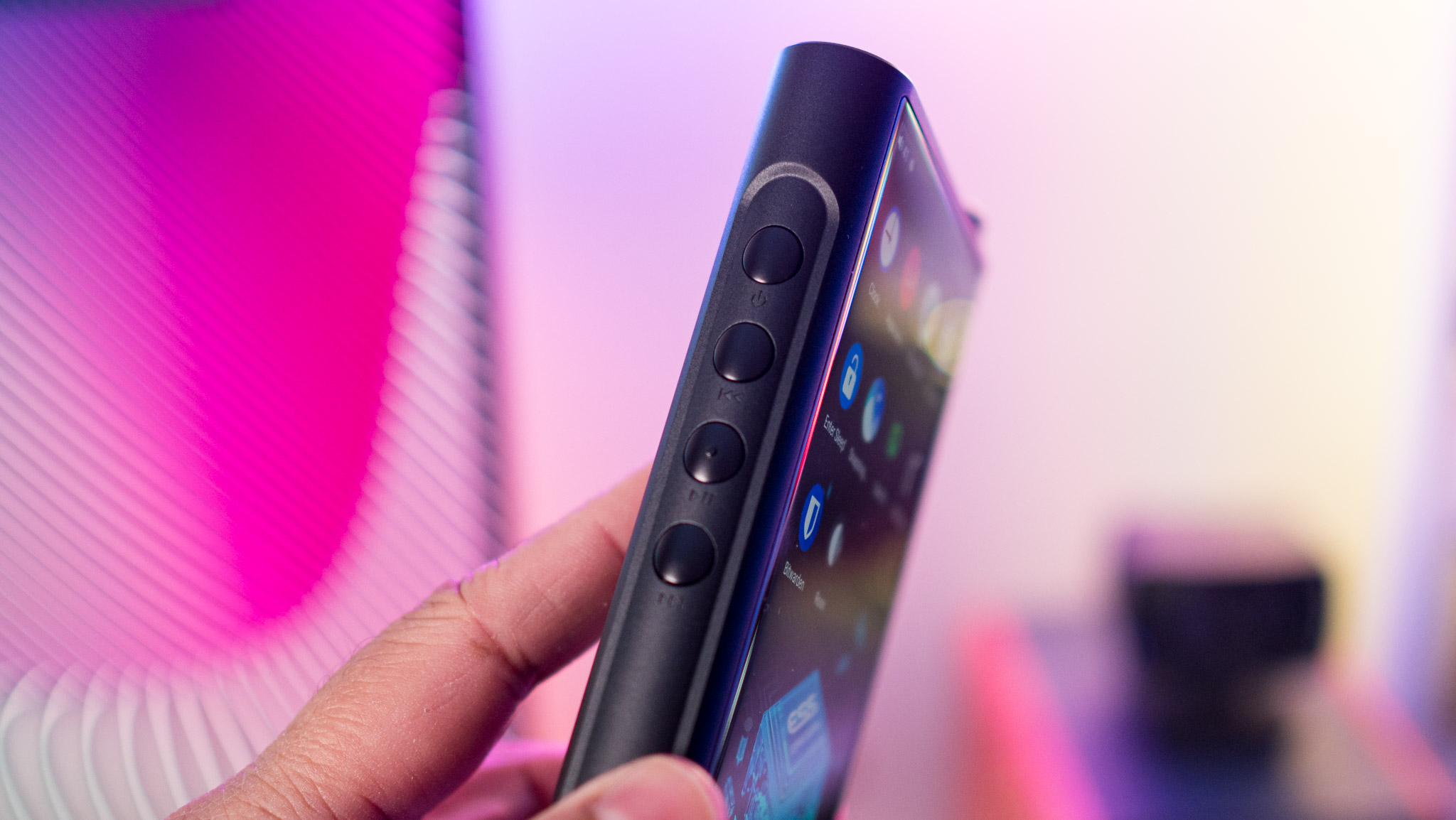
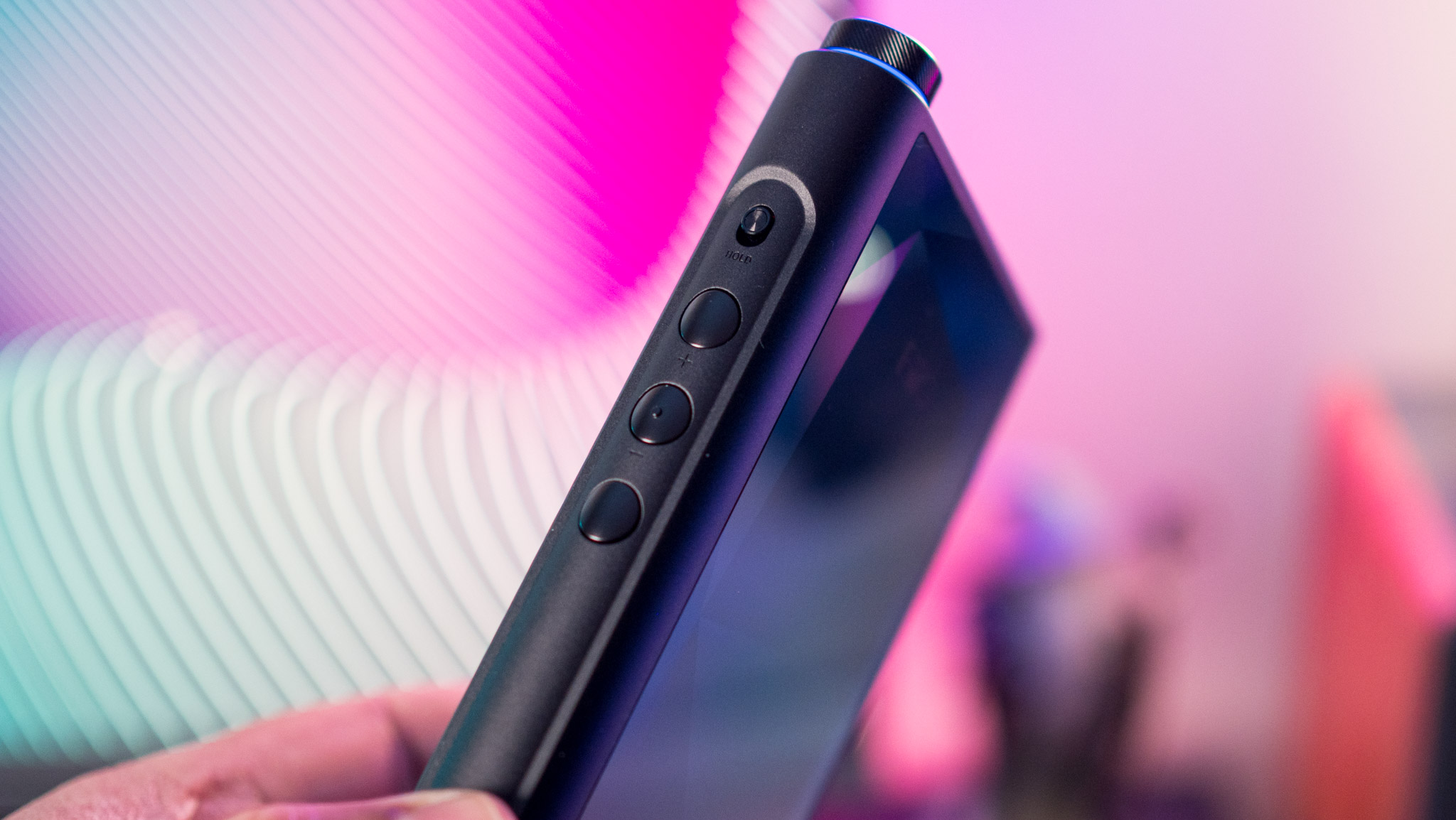
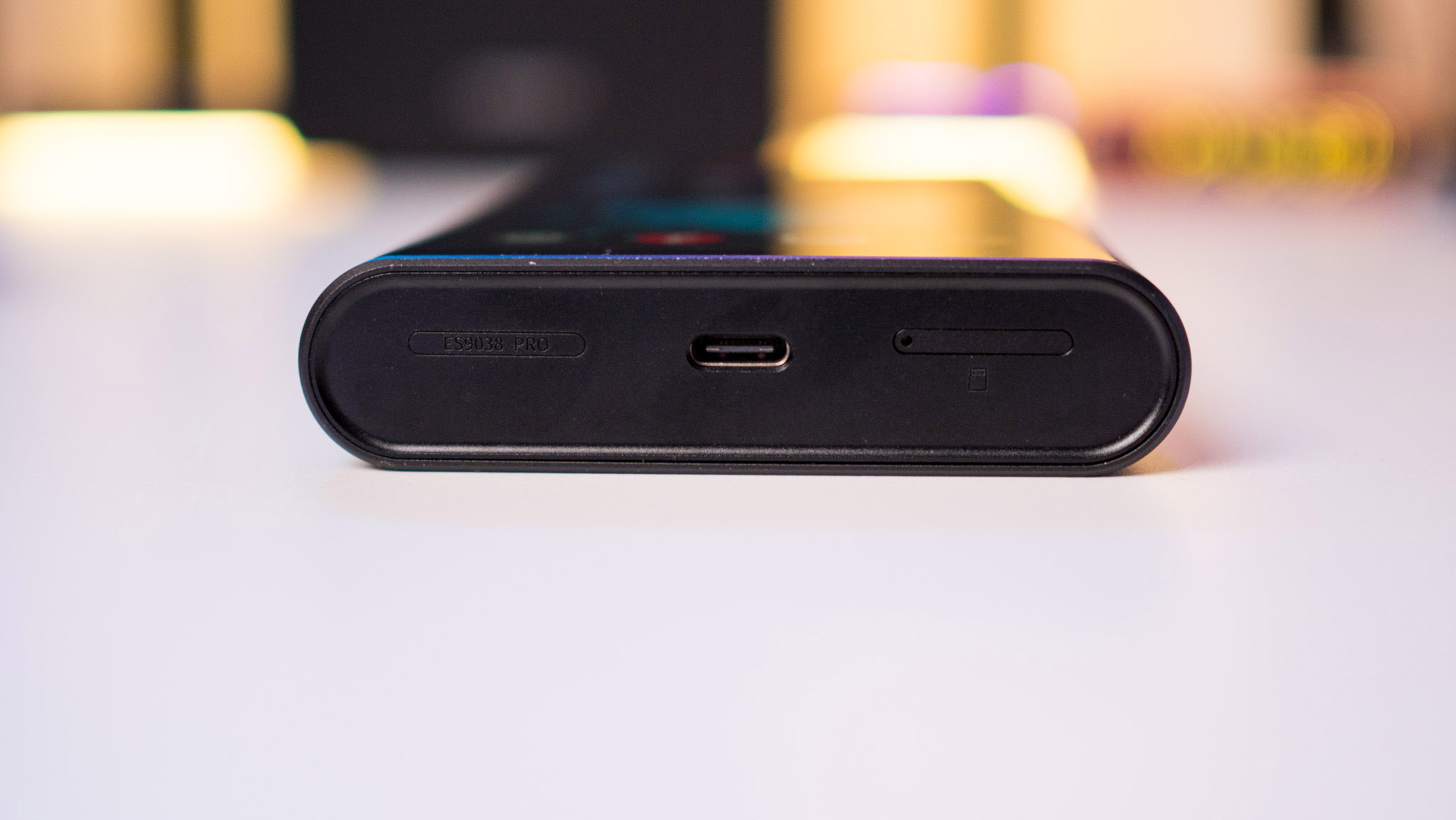
You'll find the USB-C port at the bottom, and this can be used for charging as well as connecting to target devices. There's also a MicroSD card slot at the bottom, and the M15S houses MicroSD cards up to 2TB in size, so if you've got a large offline music library and you want to carry it with you, that's possible here.
Fiio is known for being generous with accessories, and it's no different with the M15S. You also get all the cables you need, including USB-C to USB-C and USB-C to Lightning, and there's a USB-C to USB-A dongle if you want to connect the player to your Windows machine to use as a DAC.
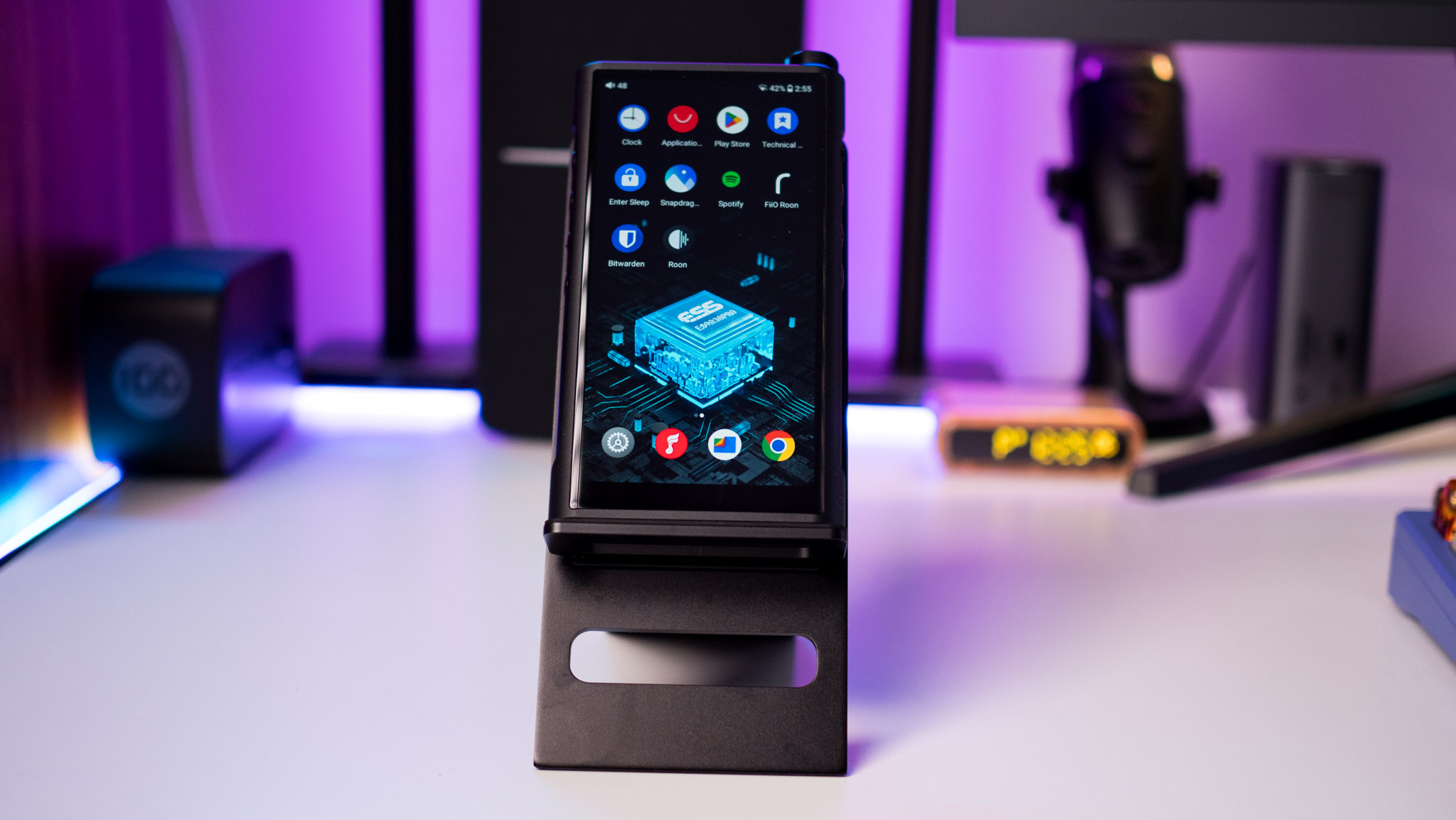
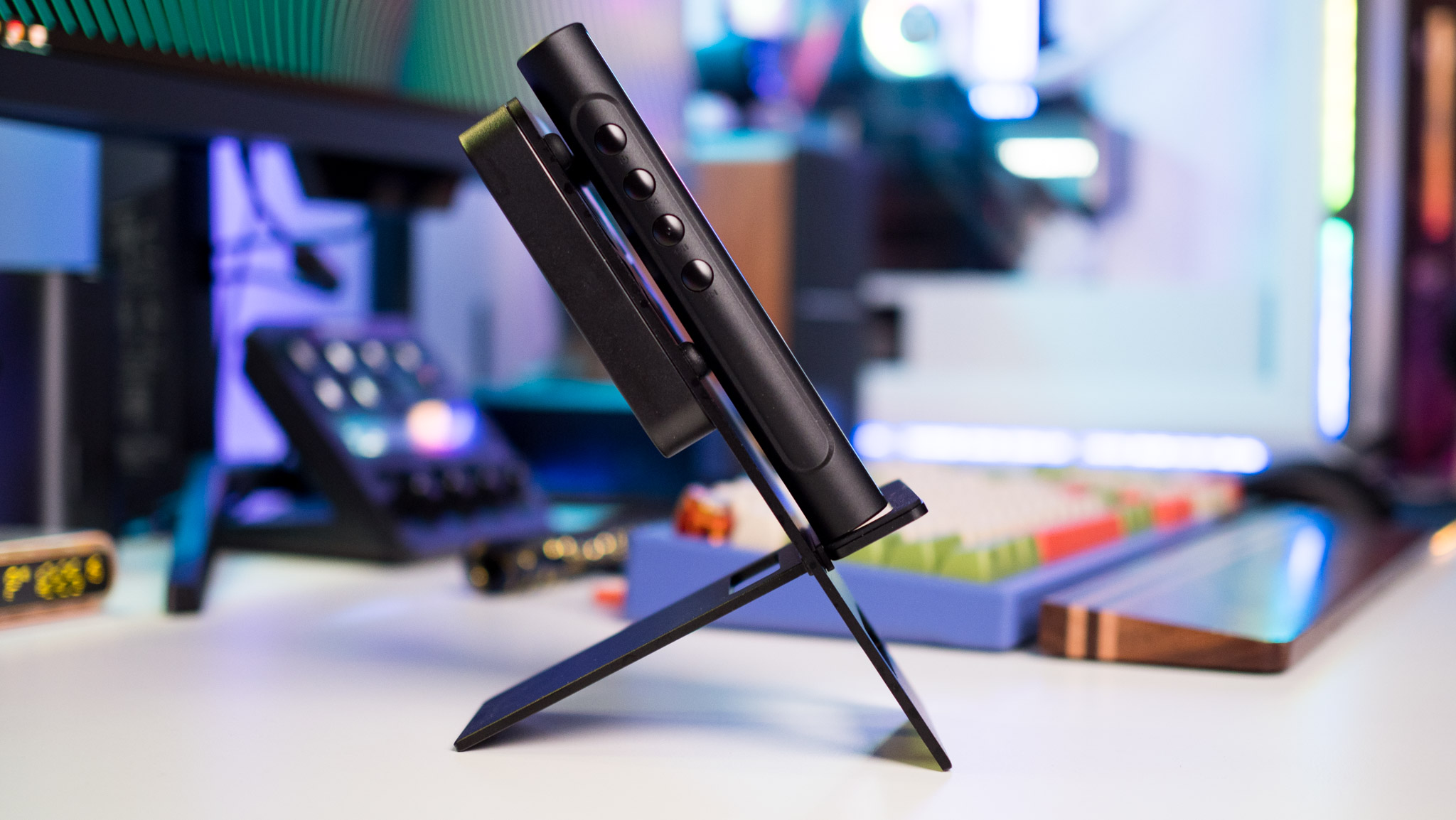
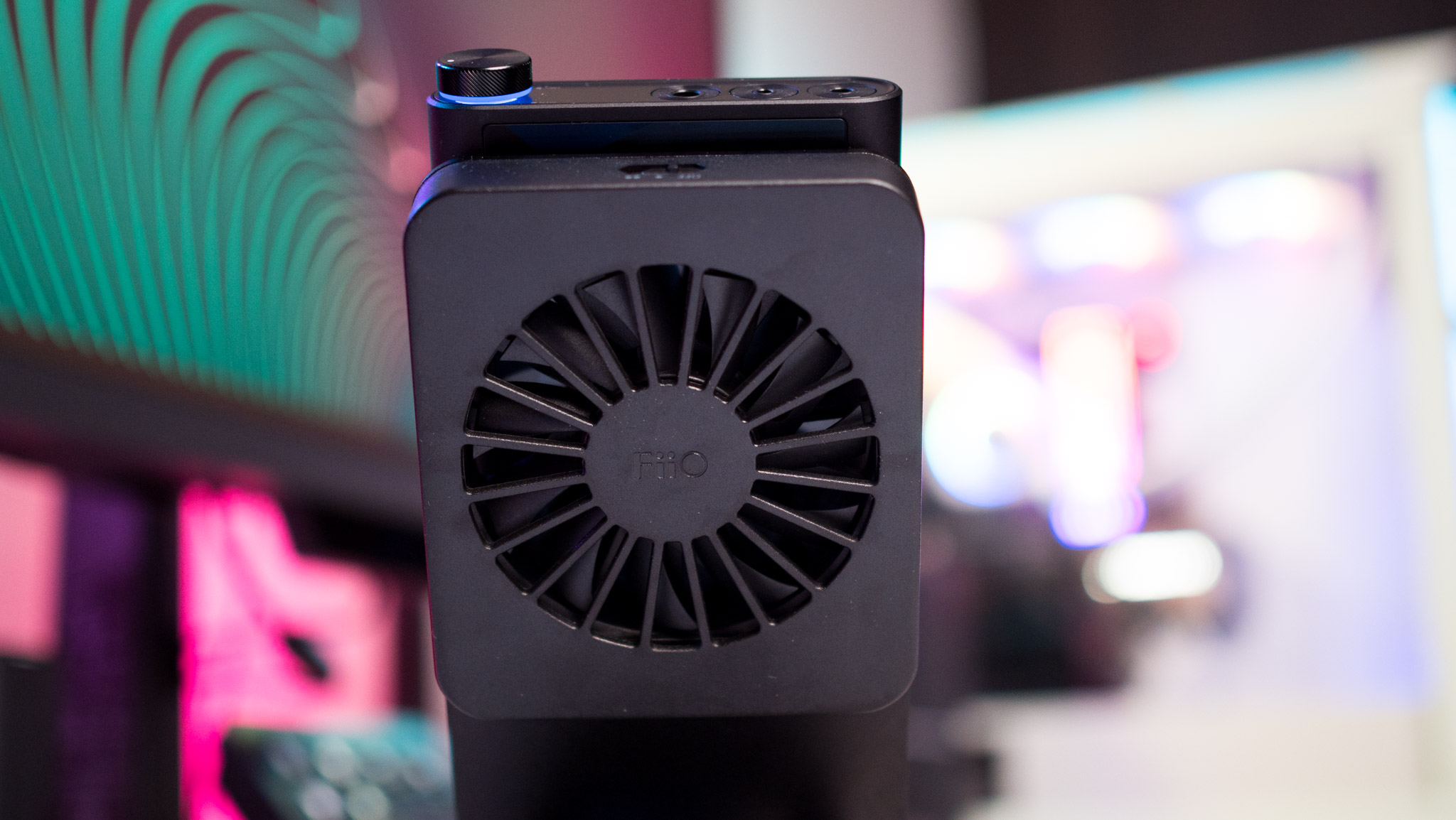
The most interesting addition is a DK3S foldable cooling stand that's meant for use with the M15S. The stand sells for $39 on its own, and with the M15S running hot under load, it's understandable that the brand is bundling the fan with the package — it did something similar with the Q7 DAC as well.
I like the design of the M15S quite a bit; it feels much more premium than the $499 M11S, and that pattern at the back is a sight to behold.
Fiio M15S: Screen and hardware
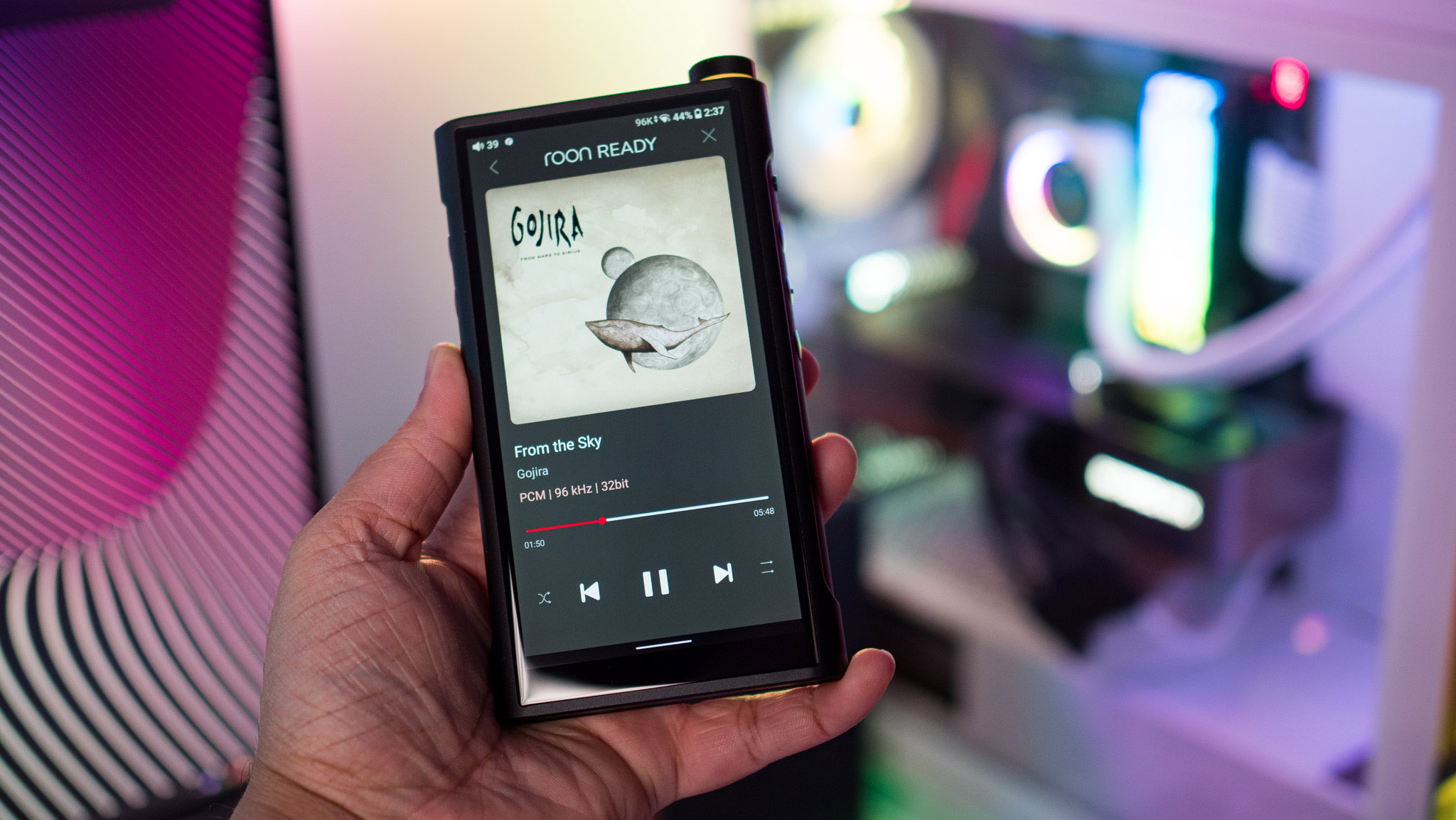
The M15S is Fiio's flagship digital audio player, and it is packing a lot of interesting hardware. The player has a 5.5-inch LCD panel with a resolution of 1440 x 720, and while I would have issues with that on an Android phone, it works really well for this use case.
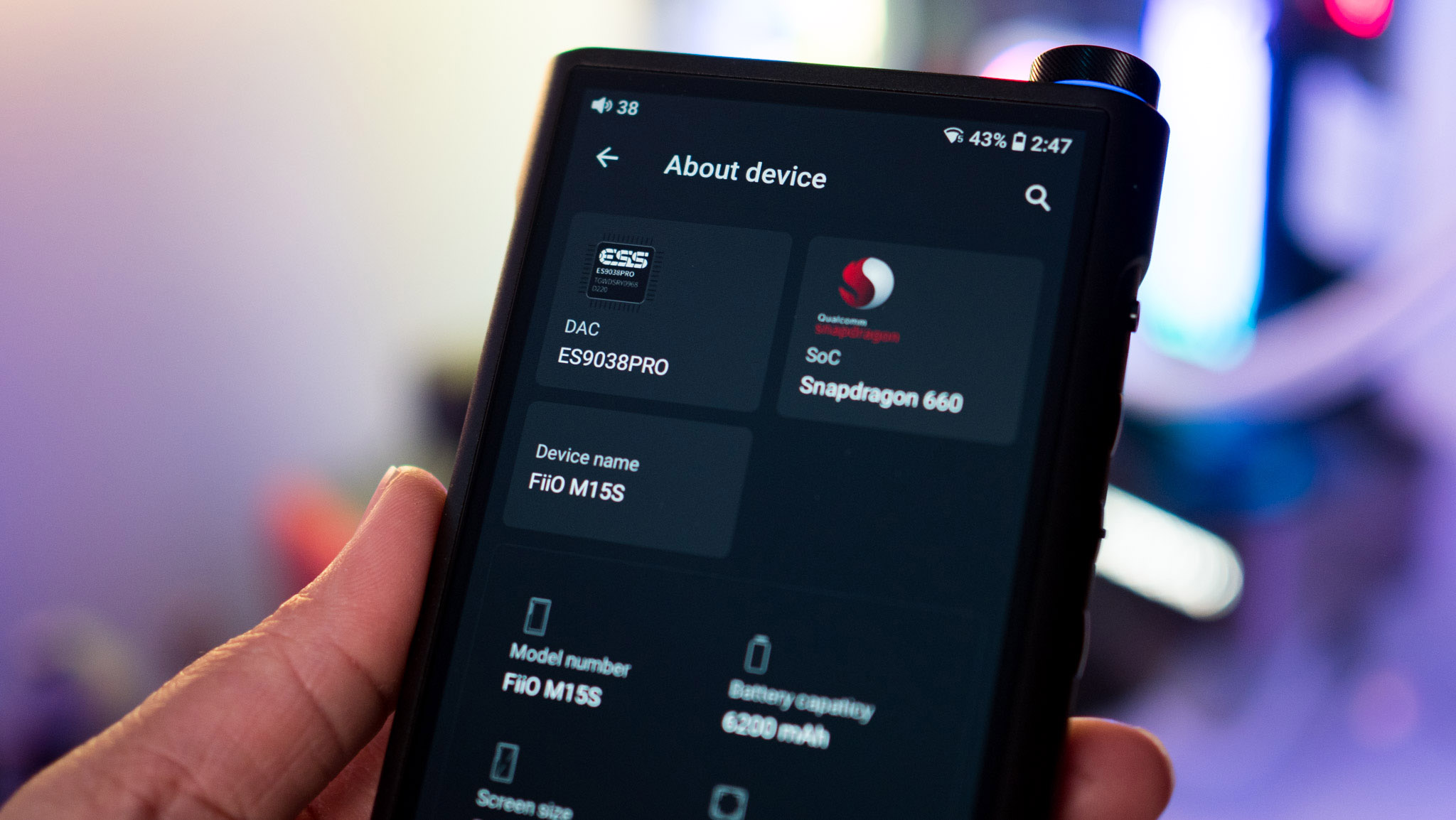
The screen itself is vibrant and has zero issues when it comes to outdoor visibility, and there's no latency here. That's down to the hardware on offer; the M15S is powered by the 14nm Snapdragon 660, and while you won't find it on any phone today, it is more than adequate for the music player. There's 4GB of RAM as well along with 64GB of built-in storage (45GB is usable), and I didn't see any issues switching between music streaming services.
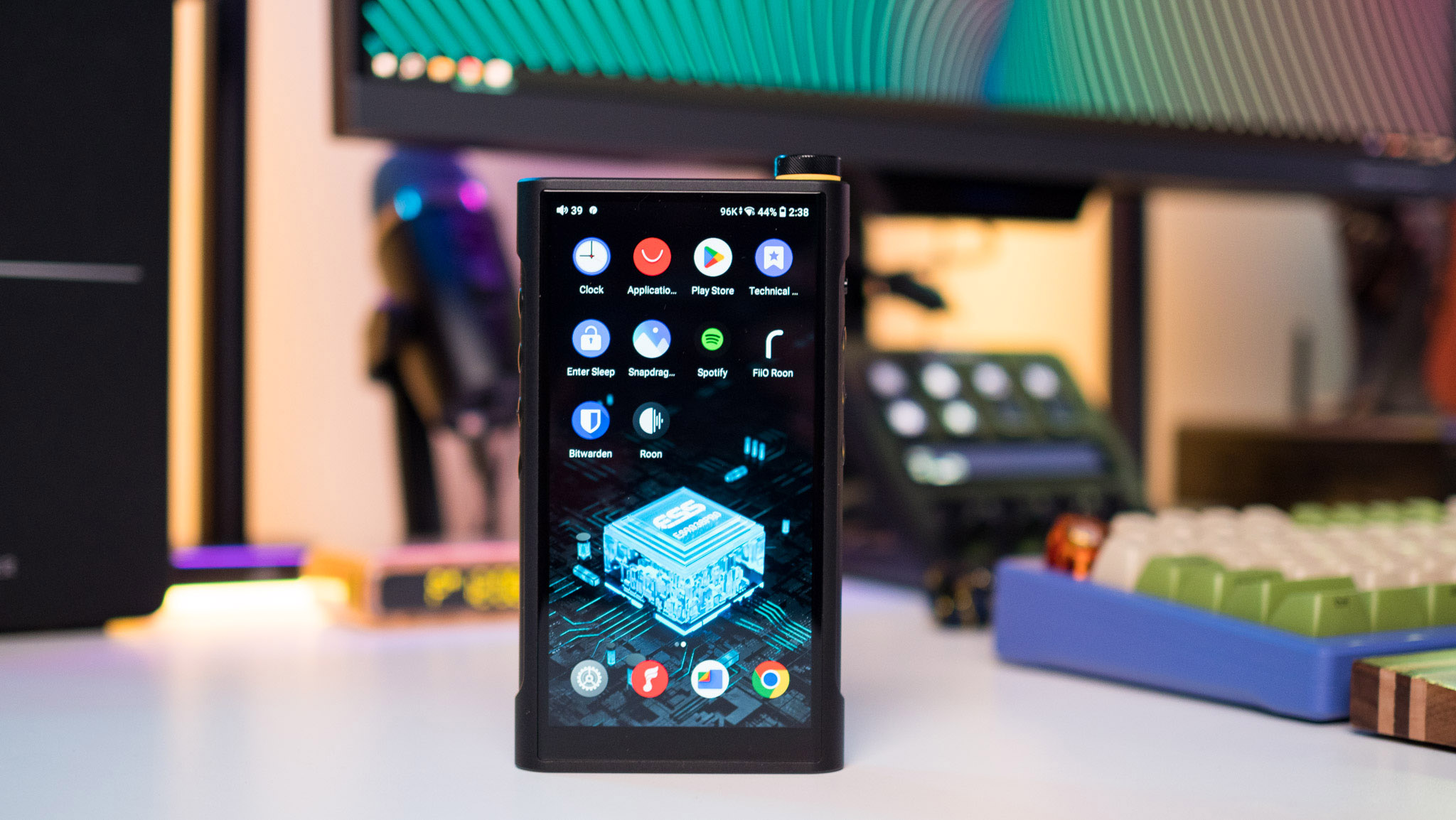
You easily get nine hours of battery life thanks to the 6,200mAh battery, and it hasn't been an issue in my use case. Fiio says it is optimizes battery charging times to prolong longevity, and seeing as how this is a sealed unit, that's a good thing. What isn't great is the charging time itself — it takes over 3.5 hours to fully charge the M15S. While it isn't anywhere close to even mid-range Android phones, you're unlikely to need to charge this thing in the middle of the day, so I don't mind the slow charging times.
There's also the ability to use the M15S in a desktop configuration by connecting it to a USB PD charger, and in this mode, it doesn't use the internal battery at all, and you get a higher power limit.
On the whole, there's nothing to fault in terms of the hardware. Fiio did a stellar job in this area, and while I would have liked to see more battery life, nine hours of music playback over the balanced 4.4mm port should be decent enough for most users.
Fiio M15S: Software and connectivity
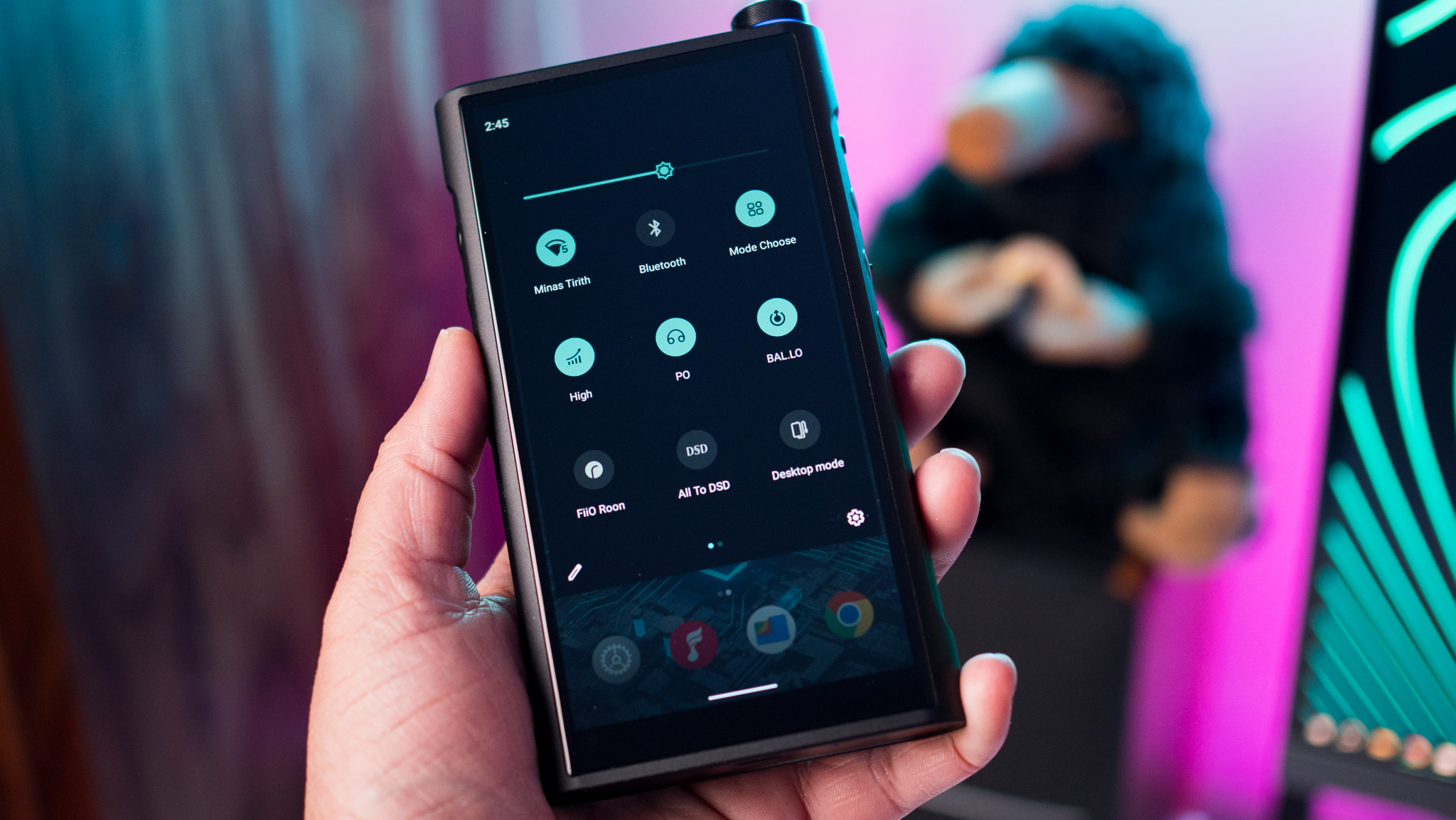
Fiio didn't change too many things on the software front. The M15S still runs Android 10, and that feels like an oversight considering there are players nowadays that feature Android 12 out of the box. I can understand the reasoning for continuing with Android 10; Fiio made a lot of audio-related customization to the vanilla Android interface to take full advantage of the audio hardware, and it would have to rework all those elements if it had to use Android 12 as a foundation. Still, I'd like Fiio to do better in this area.
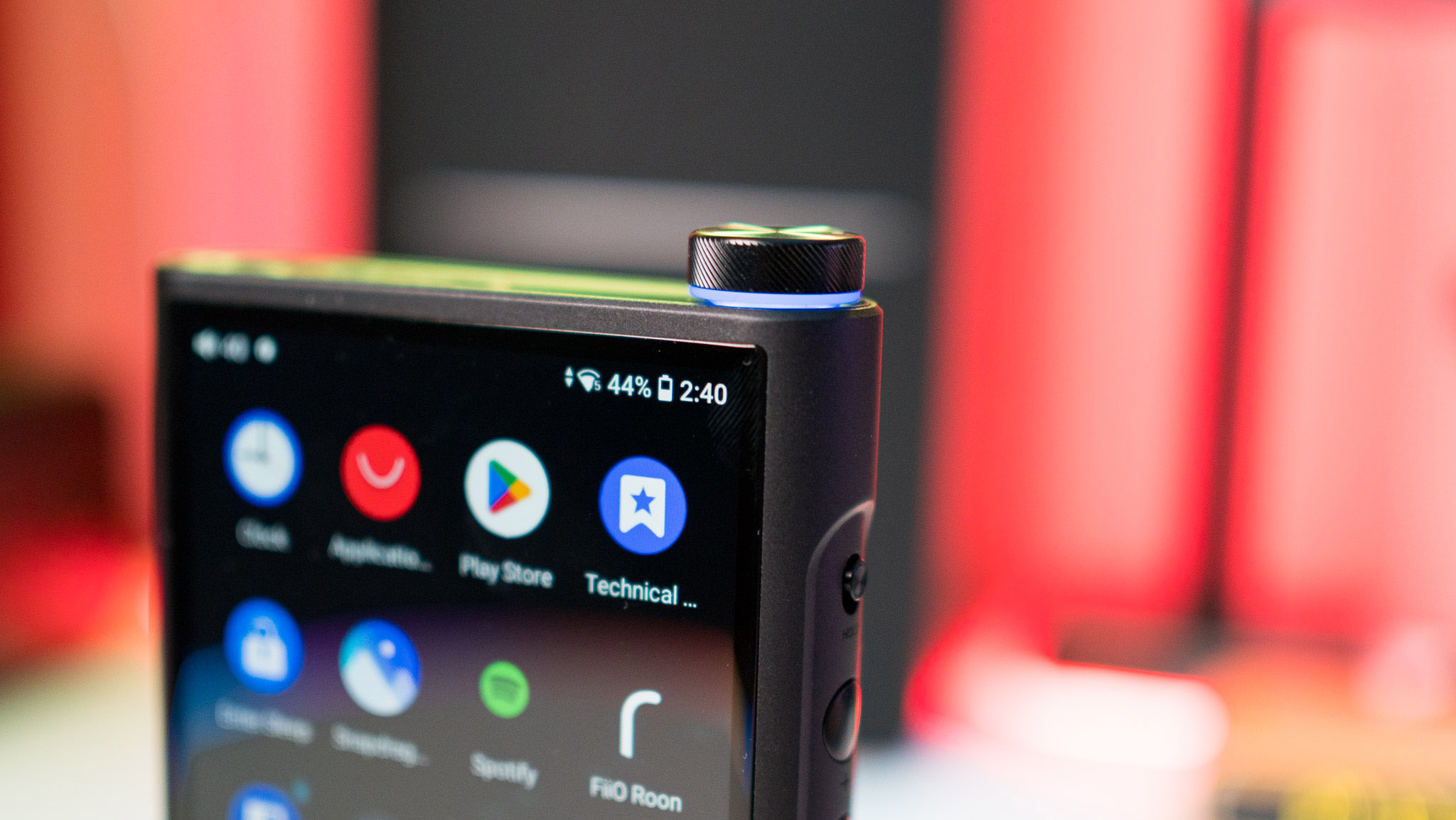
That said, the interface is fluid, and there's no bloat to be found. Fiio has its own app store that lets you install popular music streaming services, and thanks to Google Mobile Services, you get full access to the Play Store. The interface doesn't have any customization, so it is identical to vanilla Android 10, and that means you get the older notification pane with rounded toggles and a card-style overview menu. You'll find a system-wide dark mode here, and navigation gestures.
Thankfully, there's nothing missing on the connectivity front. You get all the ports you need, including the single-ended 3.5mm jack, balanced 4.4mm and 2.5mm ports, and USB-C for connecting to other devices. There's line out for all the ports, and you can use the 3.5mm as a coaxial interface.
It's a similar situation when it comes to wireless connectivity. The M15S has Bluetooth 5.0 and Wi-Fi 6, and it includes all the wireless codecs you'll ever need: SBC, AAC, AptX, AptX HD, LDAC, and LHDC. There are absolutely no issues in this front, and one feature that I particularly like is Roon integration.
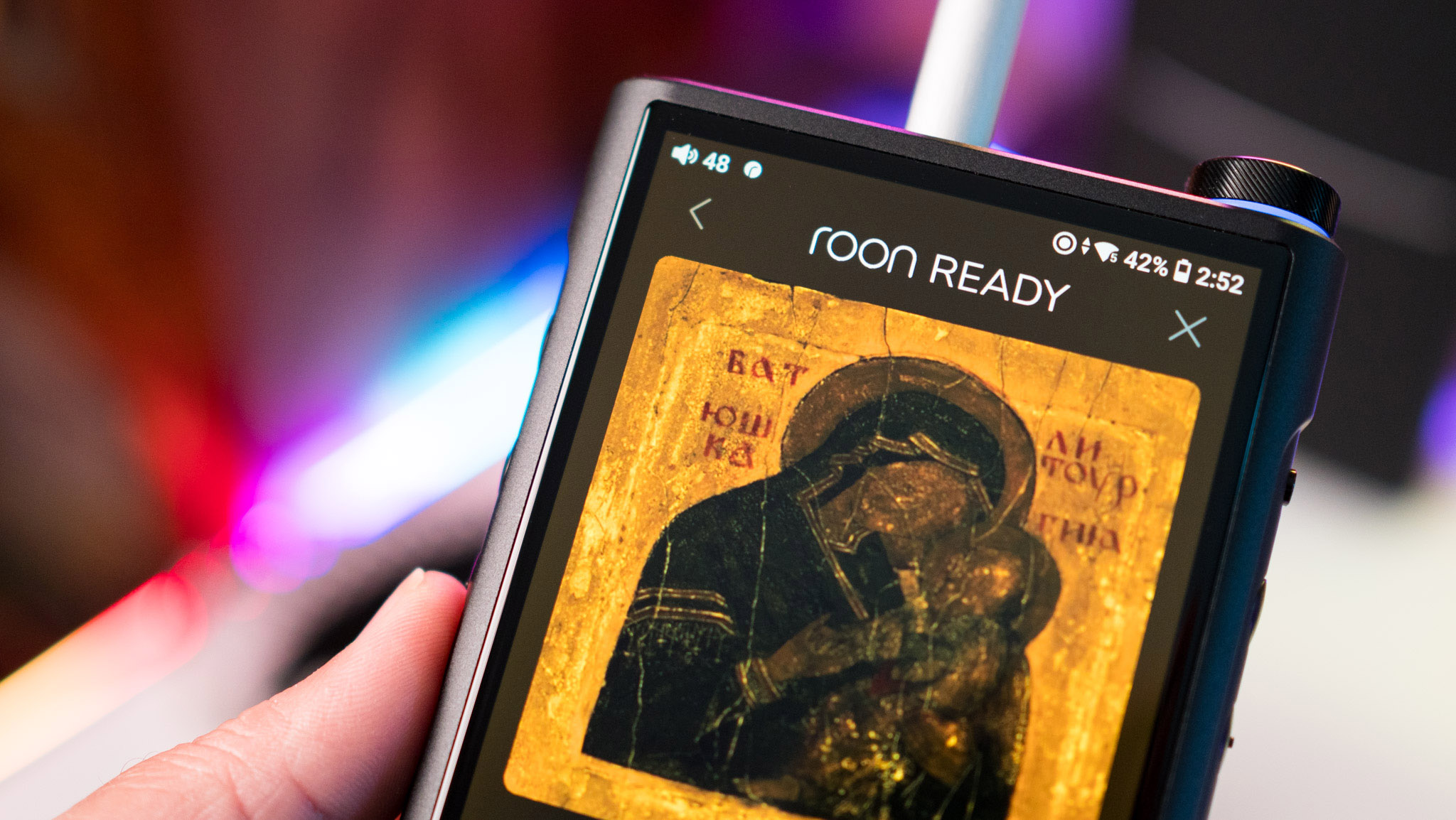
I recently started using Roon to manage my music library, and it has been a revelation. I'll do a detailed feature on the service very soon, but Roon is essentially the best solution for managing large music libraries. It has a modern UI that's easy to navigate, sorts your library automatically by artists, albums, genres, and other metadata, and has its own set of codecs that ensures you get the best audio quality.
I wasn't quite sure why a music player that doesn't have any streaming of its own costs $15 a month, but I now understand its potential. If you have a large offline music library, you should give Roon a try. The M15S works seamlessly with Roon, and it has been an absolute joy to use the device to stream tunes from my music collection.
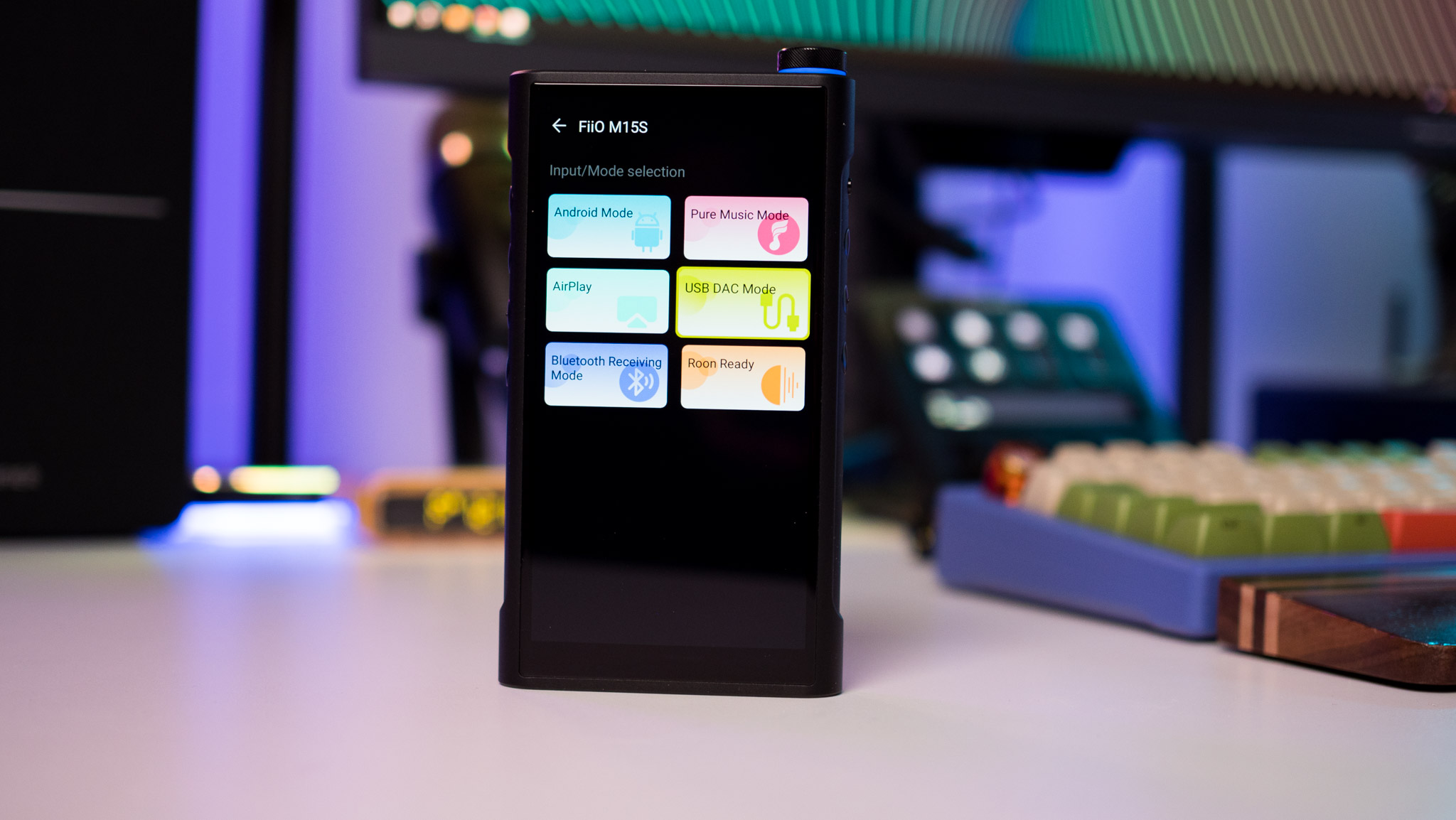
Fiio has its own music client bundled out of the box, and it does a decent enough job in its own right. To round out the features, the M15S has six modes on offer: Android mode is the default, and it has the full Android interface. Pure Music Mode switches to Fiio Music, and you don't get access to the Android UI. You can also use the M15S as a USB DAC, or use it as a Bluetooth receiver, as an AirPlay target, and as a Roon Ready device.
Basically, the M15S is one of the most feature-rich music players around, and if you're already using a budget or mid-range option and want to switch to a flagship, this will serve you very well.
Fiio M15S: Sound quality
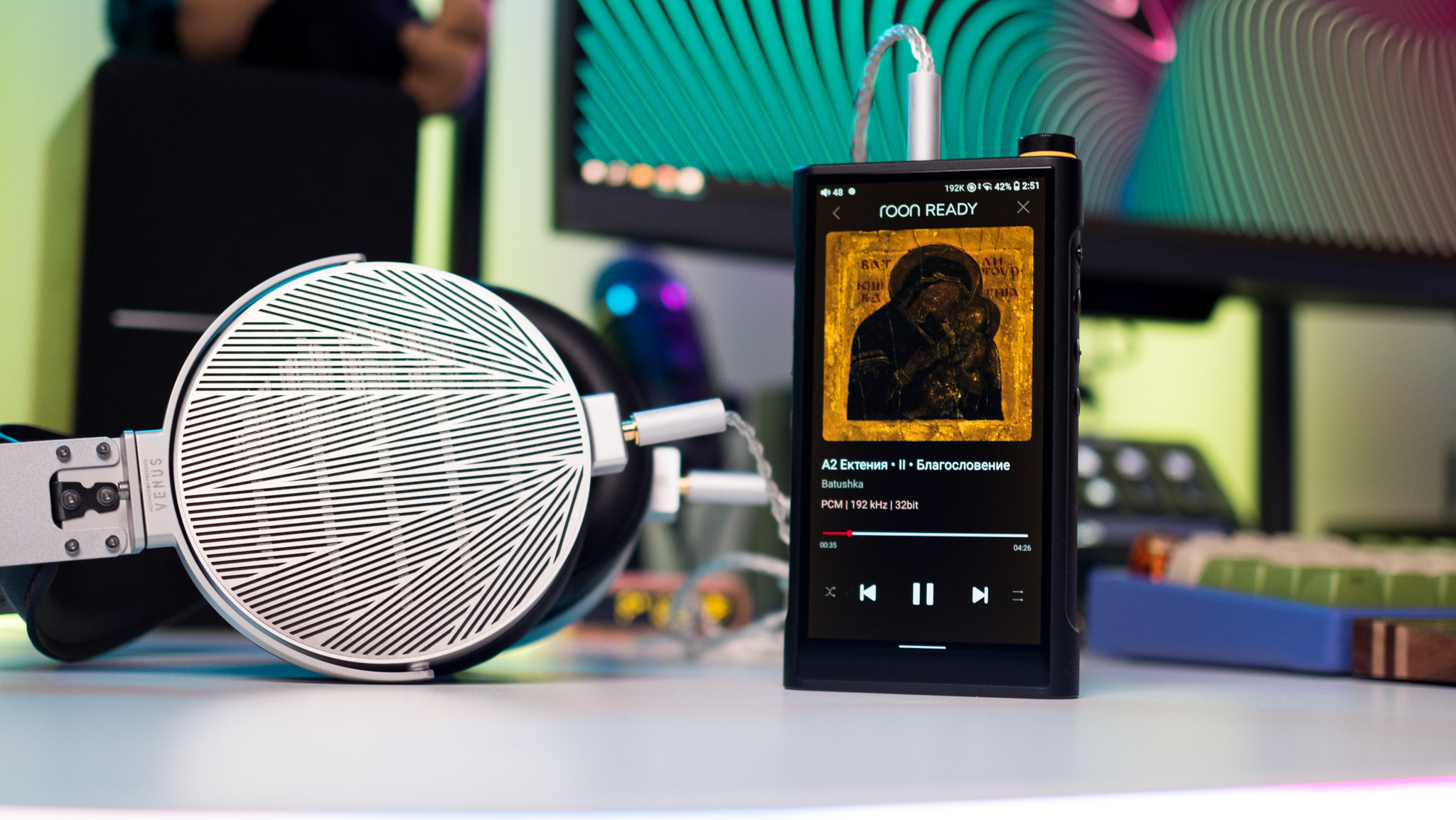
Coming to the audio side of things, the M15S features the flagship ESS ES9038Pro 8-channel DAC, the same that's found in a slate of the brand's products, including the Q7 DAC and the K9 Pro. Unlike the K9 Pro, the M15S has a single DAC module, and it goes up to 32-bit/384kHz and DSD256 in USB DAC mode and 32-bit/768KHz and DSD512 in USB audio mode. There's also MQA here — allowing you to use Tidal with the player — and it unfolds at 8x.
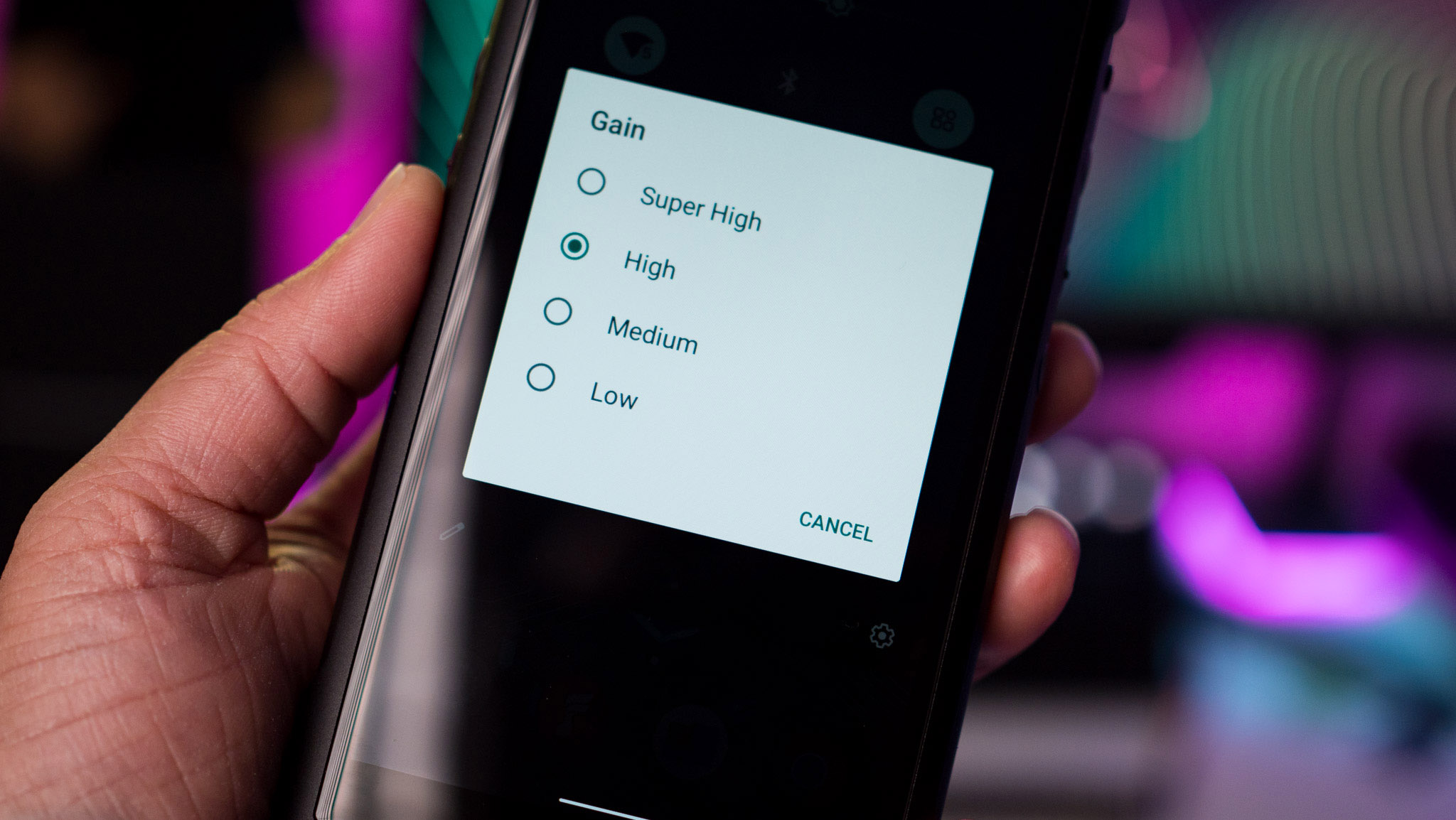
The key difference with the M15S over some of the other Fiio products is that it misses out on THX amps, instead using dual OPA926 amps. Now, this will be a point of contention for some users as the THX hardware produces a clean sound that became a characteristic of Fiio DACs over the last 18 months, but the M15S still retains the brand's signature tuning, and the tonality befits a flagship product.
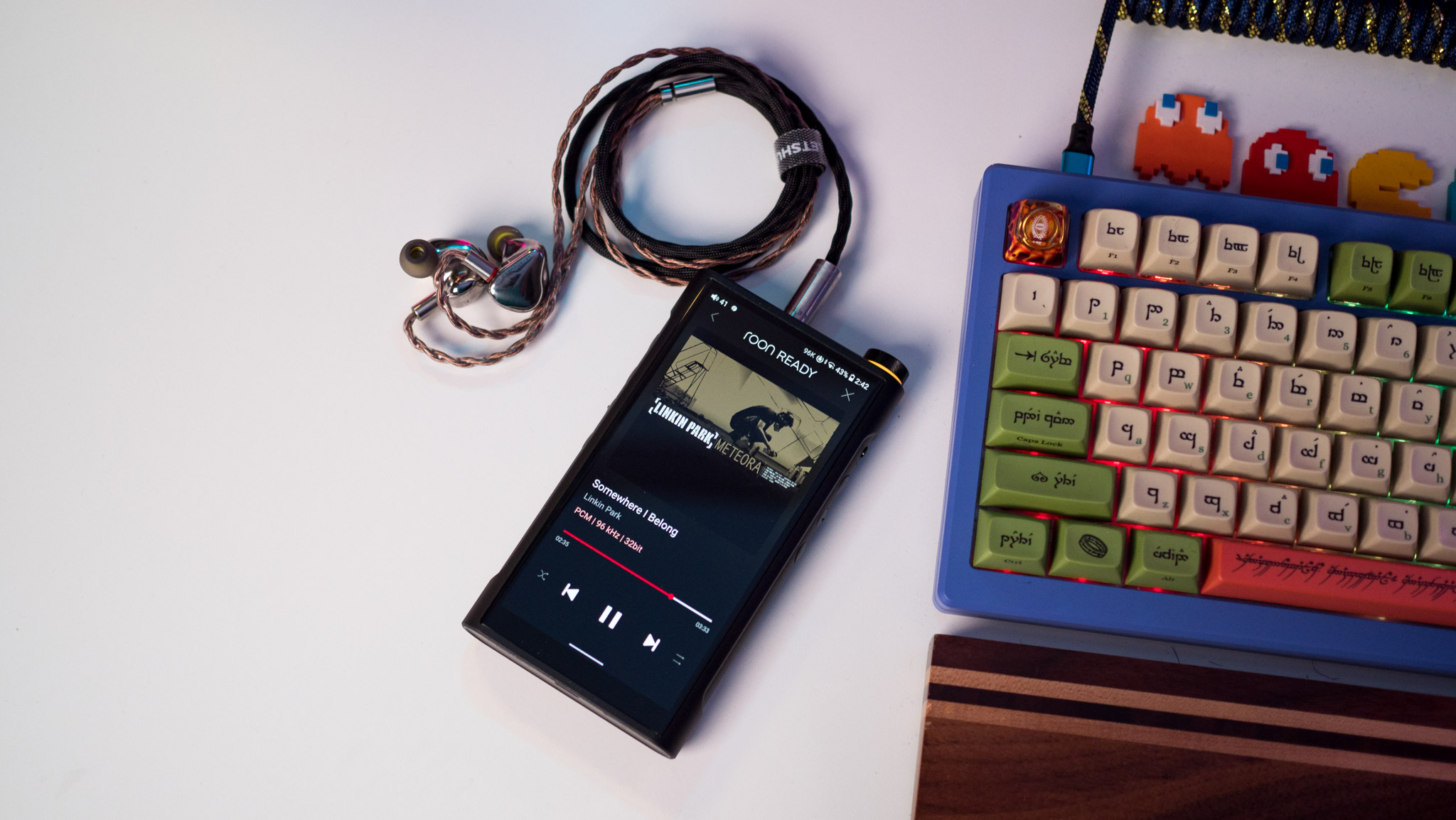
There's much more clarity in the low-end versus the M11S, and I found mids to be more engaging, with vocals coming through with plenty of airiness. The treble is clean and details, with no hint of sibilance or harshness. The best part of the M15S is the low-end tuning; you get a highly engaging bass that pairs well with several genres, and the player truly shines when used with planar headsets like the Audeze LCD-X and Moondrop Venus.
Imaging and dynamics are excellent, and the M15S brings the best out of your audio gear. On that note, there's more than enough power to go around here, and with Fiio offering five gain levels in total, the M15S can drive any IEM or headset in the market today, regardless of how demanding it can get. Of course, you can turn that up to 11 by connecting it to a wired power source.
Fiio M15S: The competition
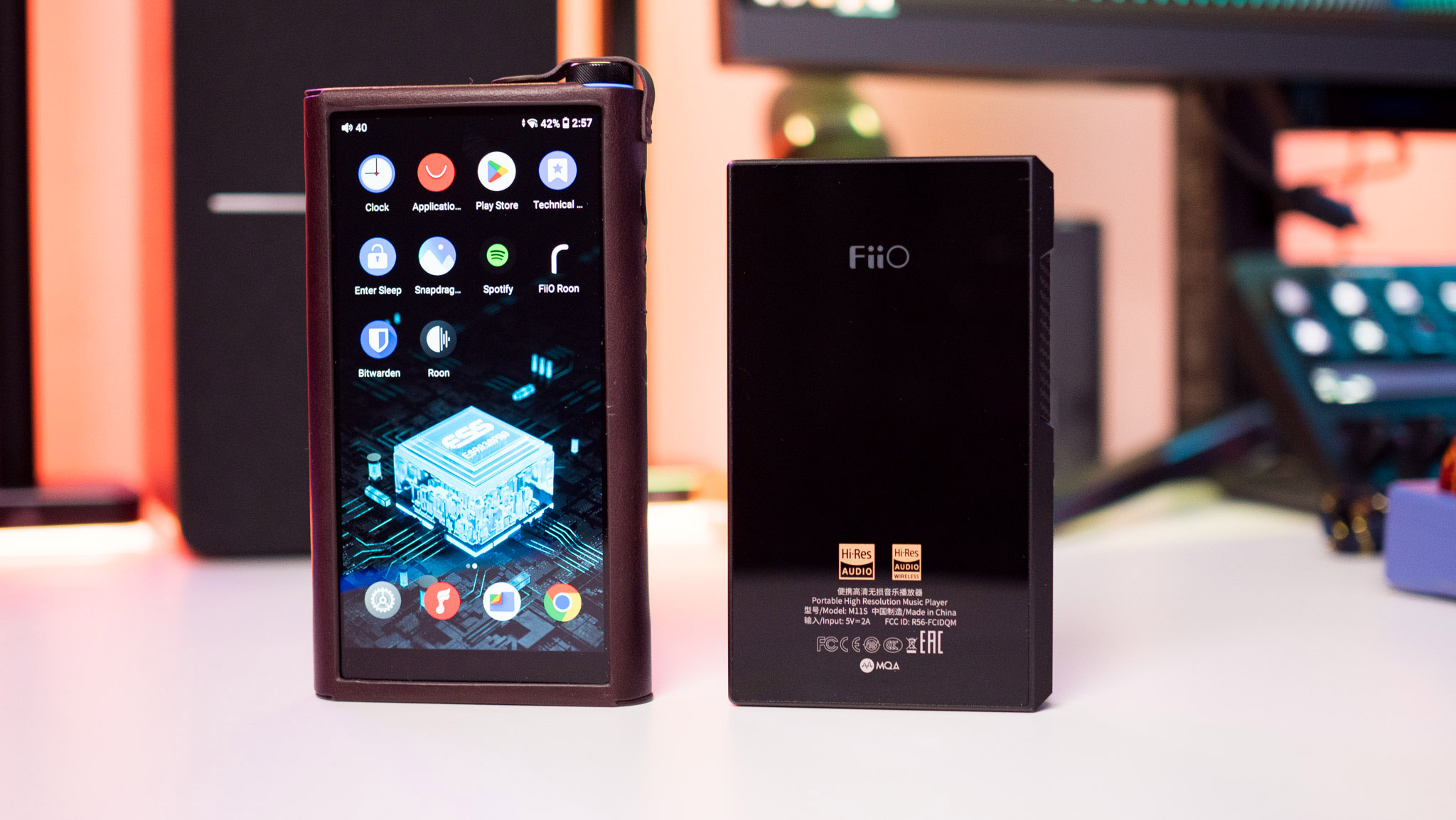
If you want a high-end music player, the Shanling M6 Ultra is a great alternative to consider. It retails for $919 on Amazon, and a key differentiator is that it uses AKM's AK4493SEQ in a quad-DAC configuration. It is powered by the Snapdragon 665, runs Android 10, has a 5-inch 1080p screen, and has an evocative design. It includes Bluetooth and Wi-Fi 6, and comes with a 3.5mm and balanced 4.4 port, and delivers the same 9-hour battery life as the M15S. It misses out on Roon integration, but you get MQA unfolding at 16X, and it is marginally more affordable.
If you don't want to shell out that much cash, Fiio's M11S continues to be a stellar choice for $499. Sure, you miss out on some of the niceties, but it delivers fantastic sound that's nearly on par with the M15S, and it also has Roon integration and all the connectivity options. There are decent savings to be had here, and what the M11S misses out in elegance it makes up for in value.
Fiio M15S: Should you buy it?
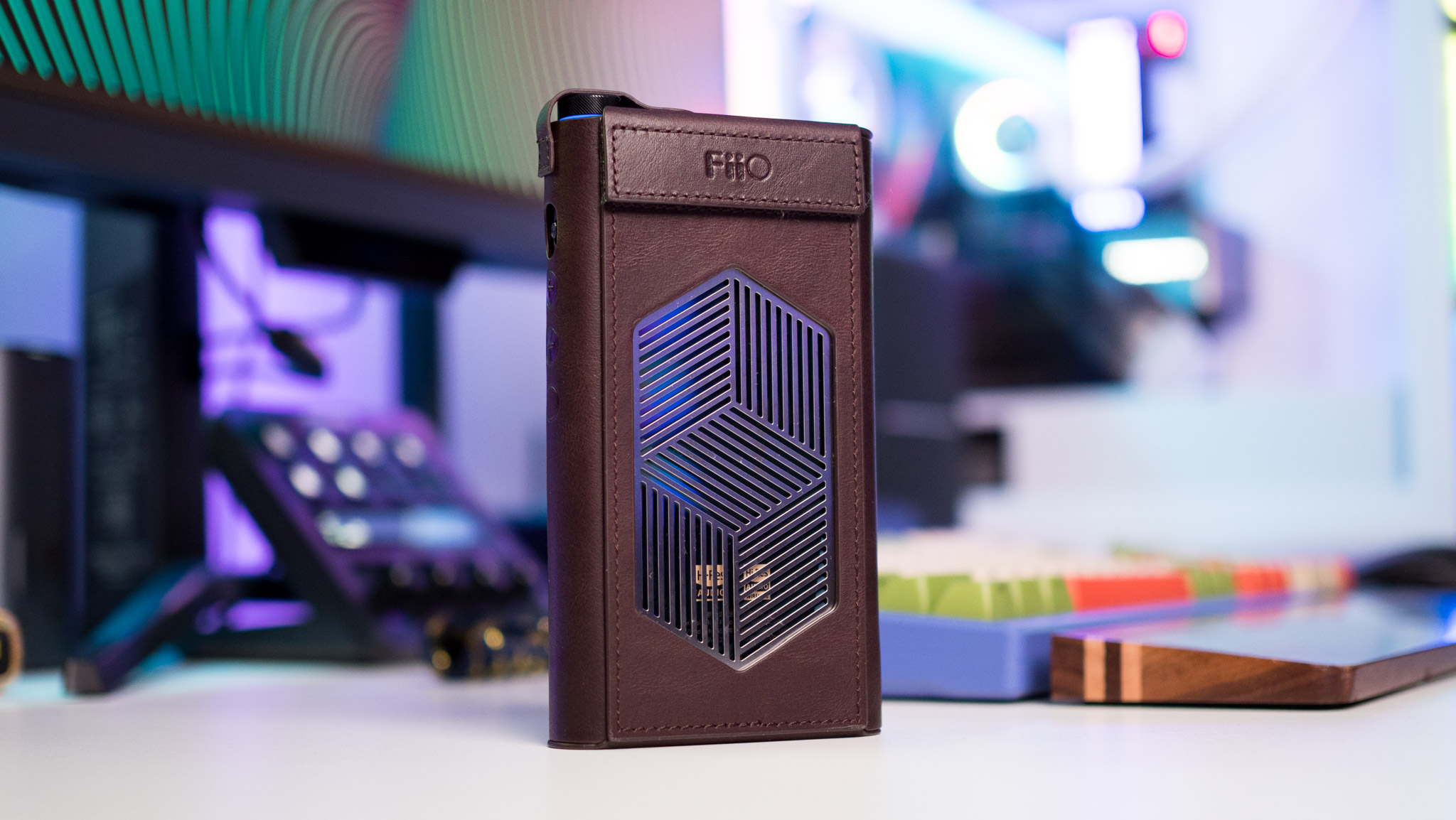
You should buy this if:
- You want the best portable music player
- You need all the wired and wireless connectivity options currently available
- You want a portable player that can drive any IEM or headset
- You need a clean sound that's engaging
- You need Roon integration
- You want a player with a striking design
You shouldn't buy this if:
- You need a music player with a recent version of Android
- You want over 10 hours of battery life
With the M15S, Fiio is continuing its streak of launching one great product after another. The M15S delivers most of the features of the flagship M17 while costing $800 less, and the sheer number of features make it an easy recommendation. The design is elegant while still being in line with the brand's overall aesthetic, it is lag-free in daily use, has a clean Android interface with useful customizations to get the most out of your audio gear, and delivers decent battery life.
The tonality and balance on offer with the M15S ensures you'll get the best out of whatever IEM and headset you connect to the player; that has been the case in my usage over the last month. I also have to reiterate just how good the bundled leather cover is; it makes using the M15S that much more enjoyable. And of course, Roon integration is a big differentiator for my own use case, and it has been a delight to access the service on the M15S.
If you're in the market for a flagship digital audio player, you'll find few options that are as good as the M15S. Sure, you can get the M11S for half the cash, but if you want the absolute best that Fiio has to offer right now, the M15S is the obvious choice.
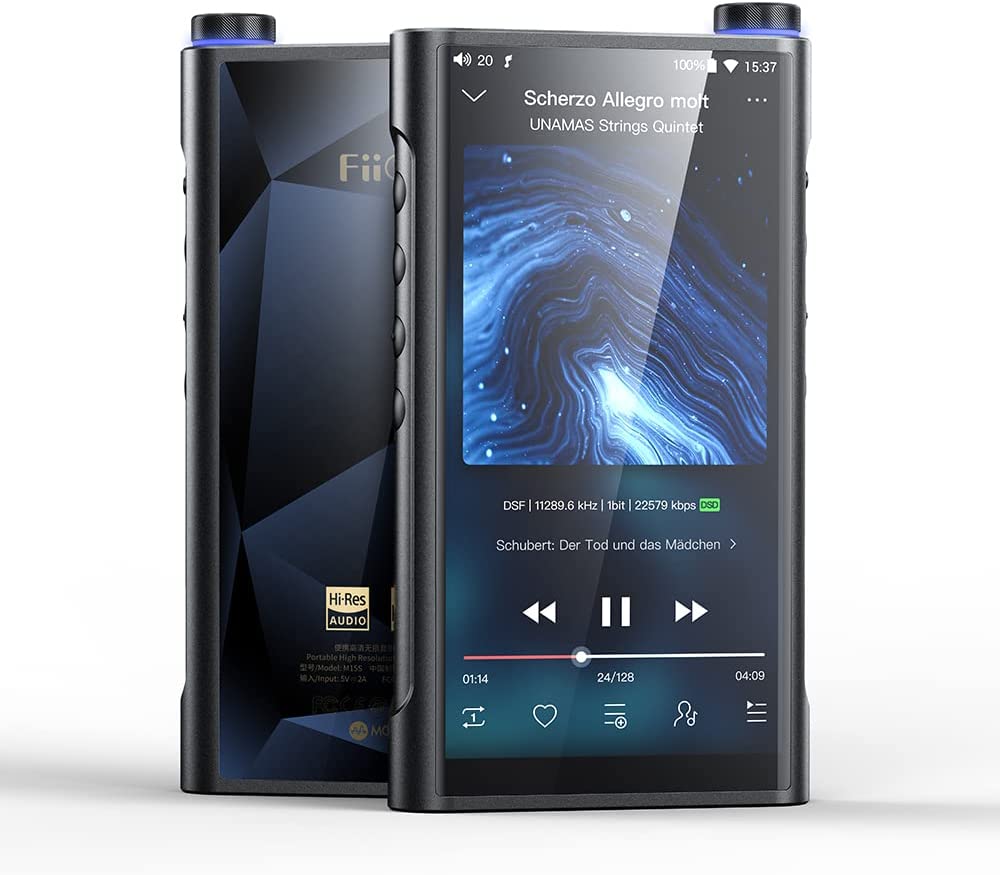
The M15S combines an elegant design with a sturdy chassis, and you get a large screen, great hardware, and all the ports you need in a high-end music player. Fiio absolutely nailed the tonal balance, and the M15S will bring the best out of your audio gear.

Harish Jonnalagadda is Android Central's Senior Editor overseeing mobile coverage. In his current role, he leads the site's coverage of Chinese phone brands, networking products, and AV gear. He has been testing phones for over a decade, and has extensive experience in mobile hardware and the global semiconductor industry. Contact him on Twitter at @chunkynerd.
